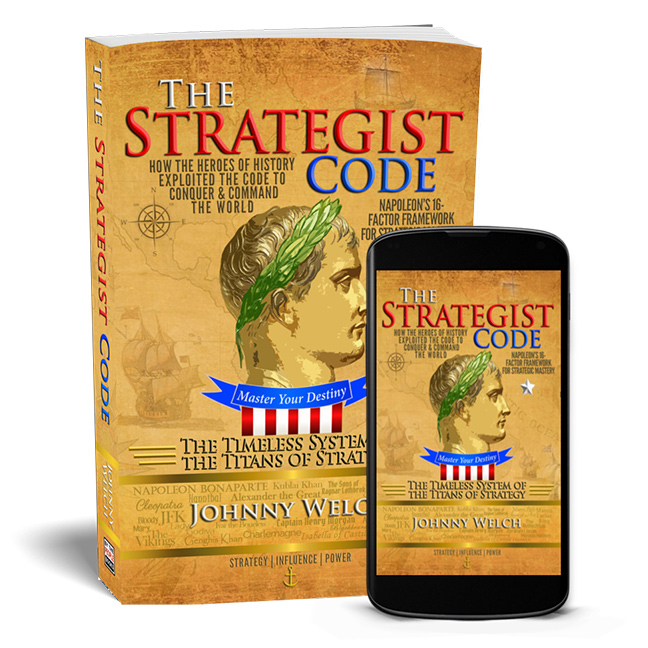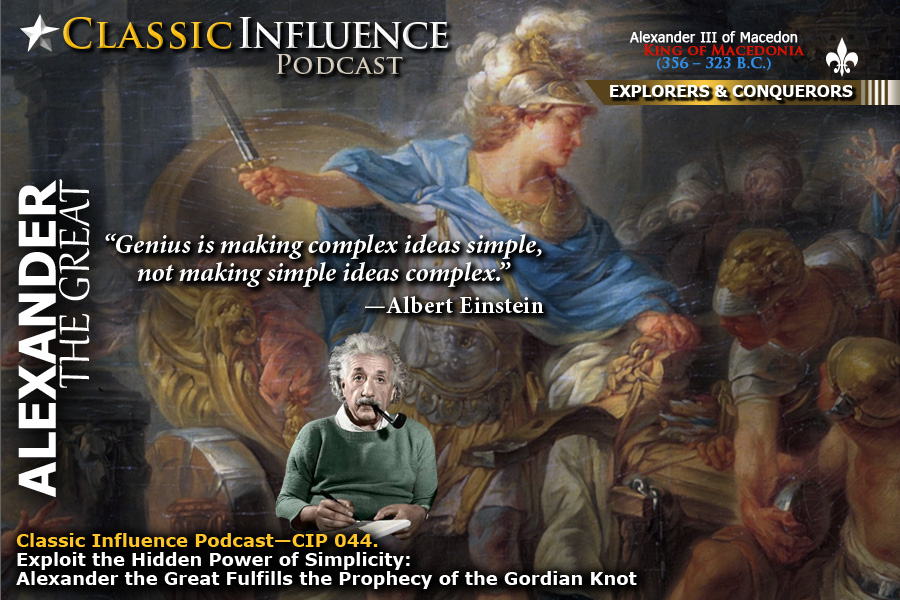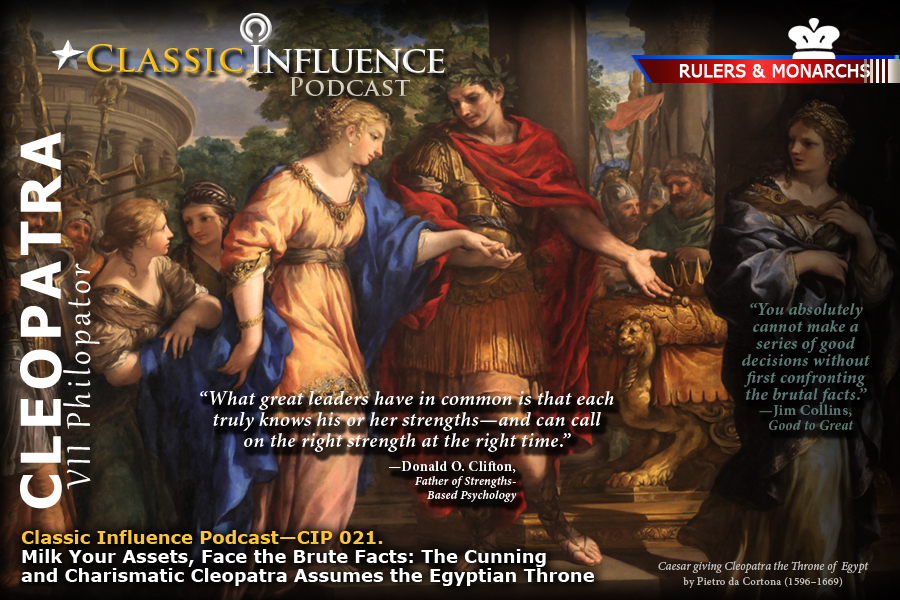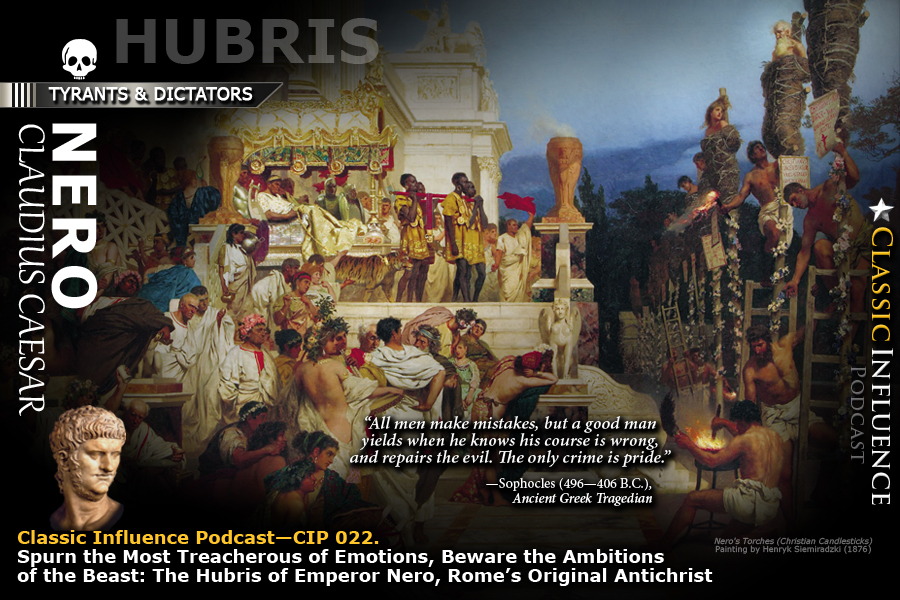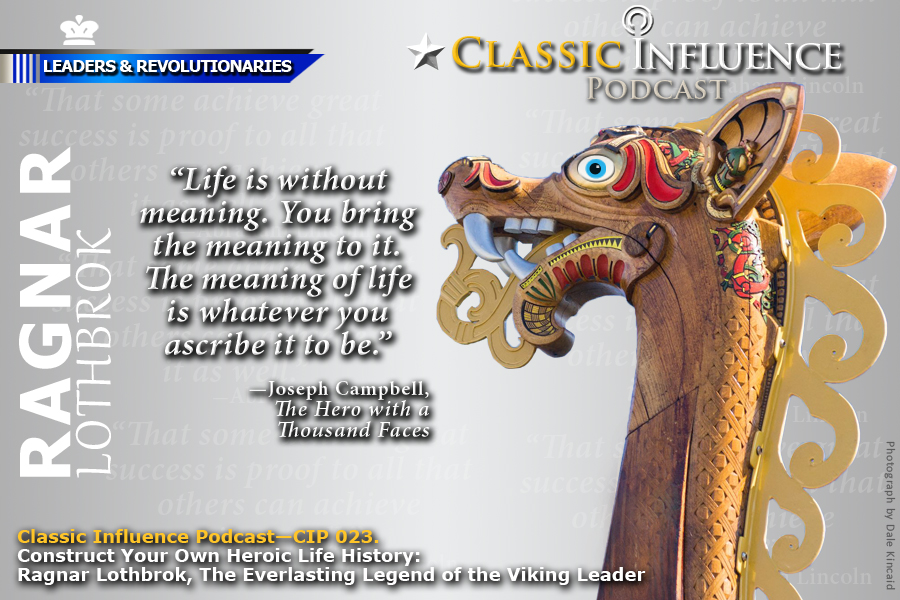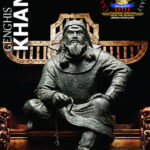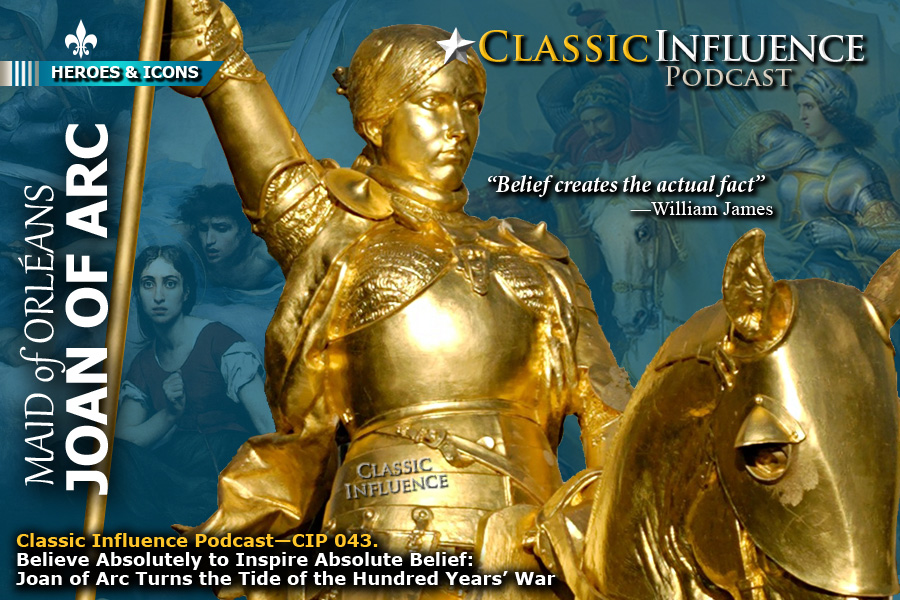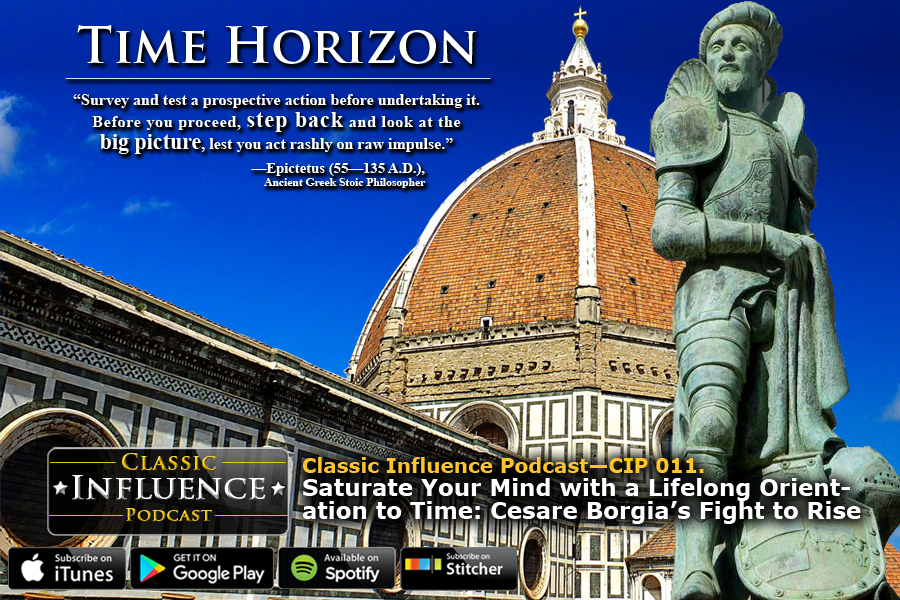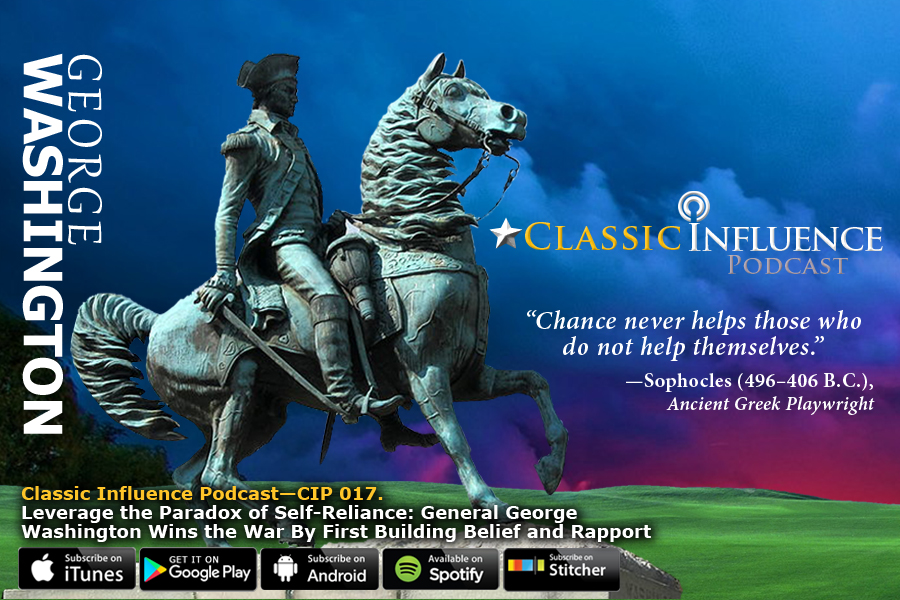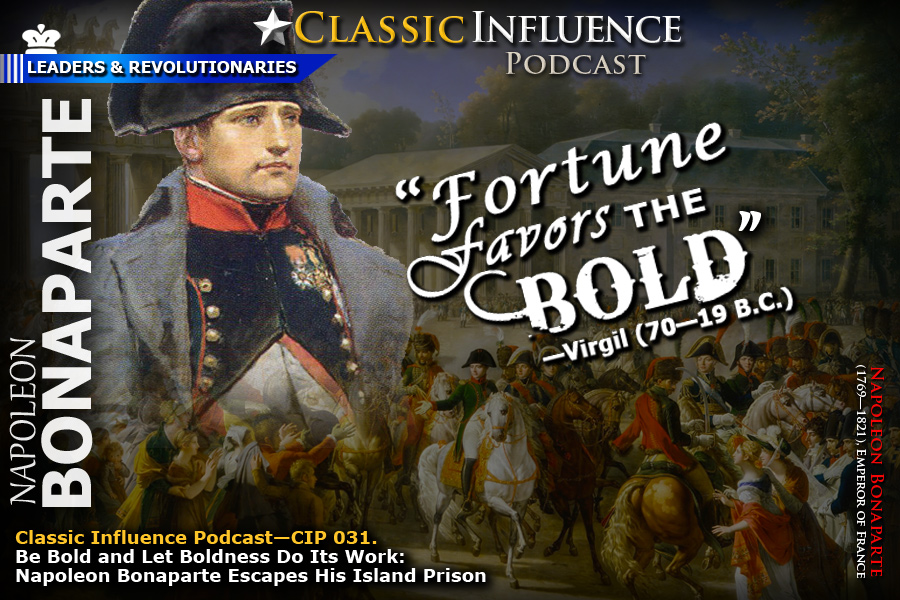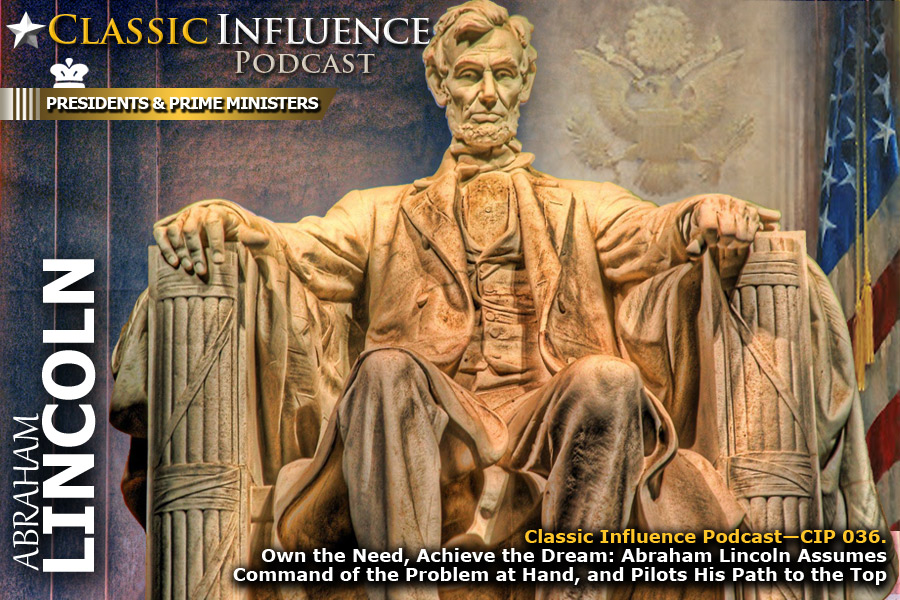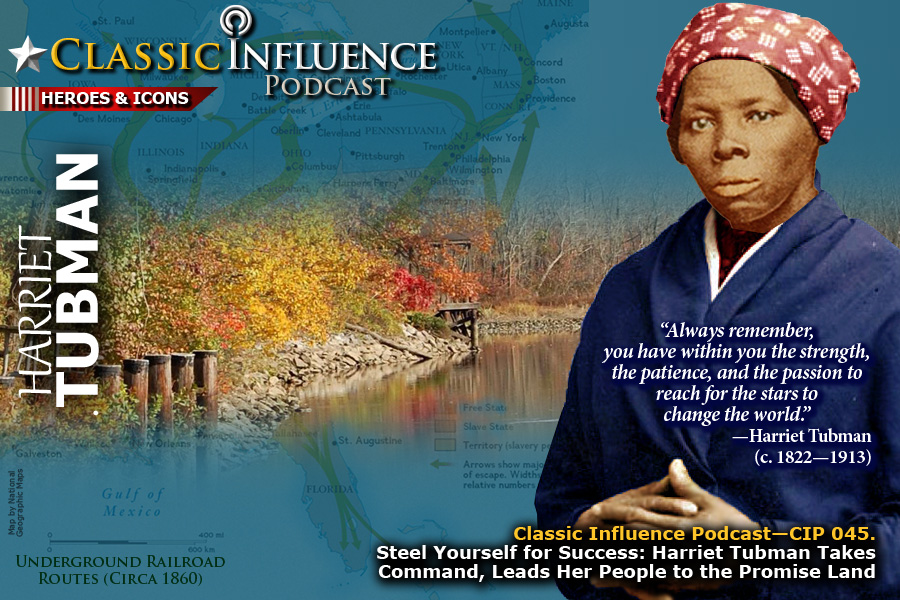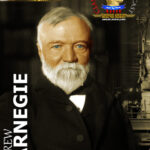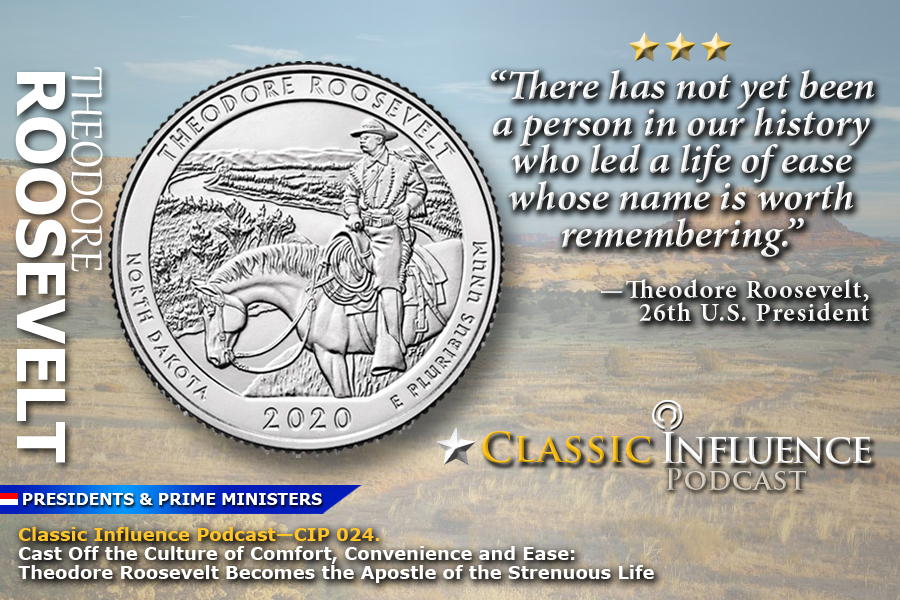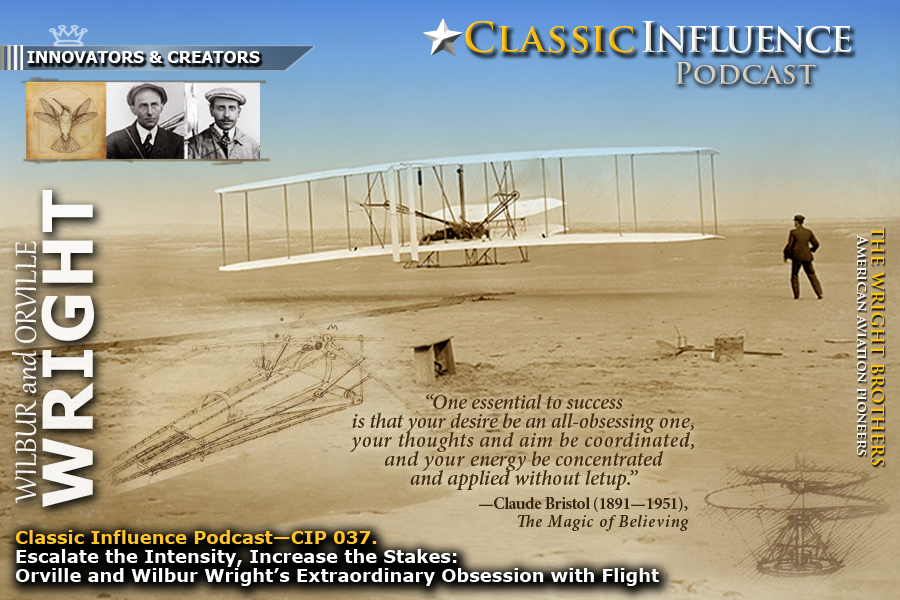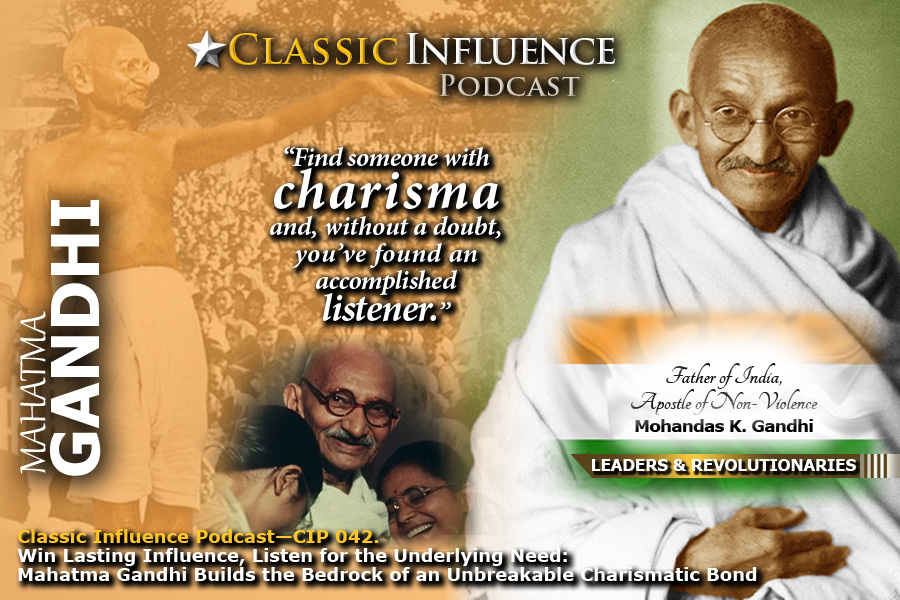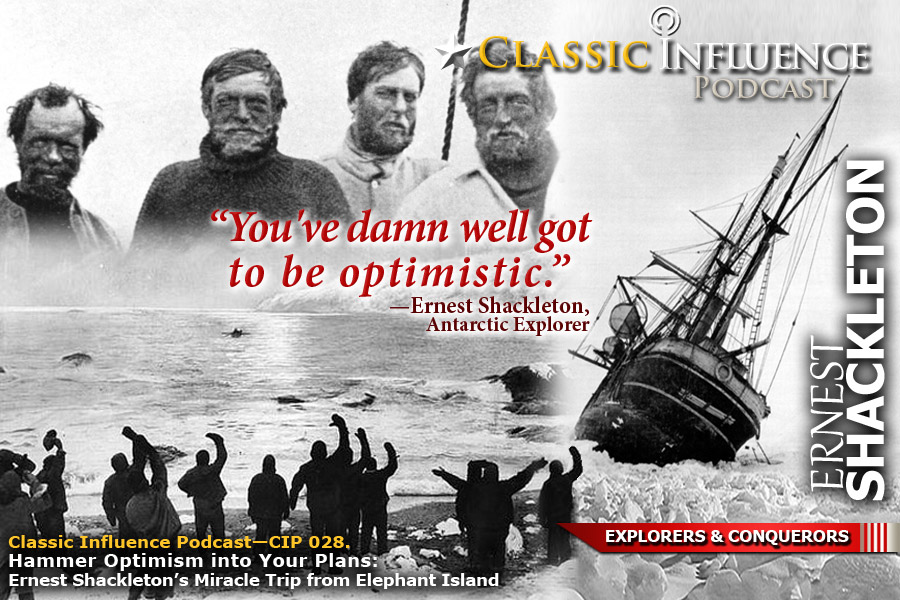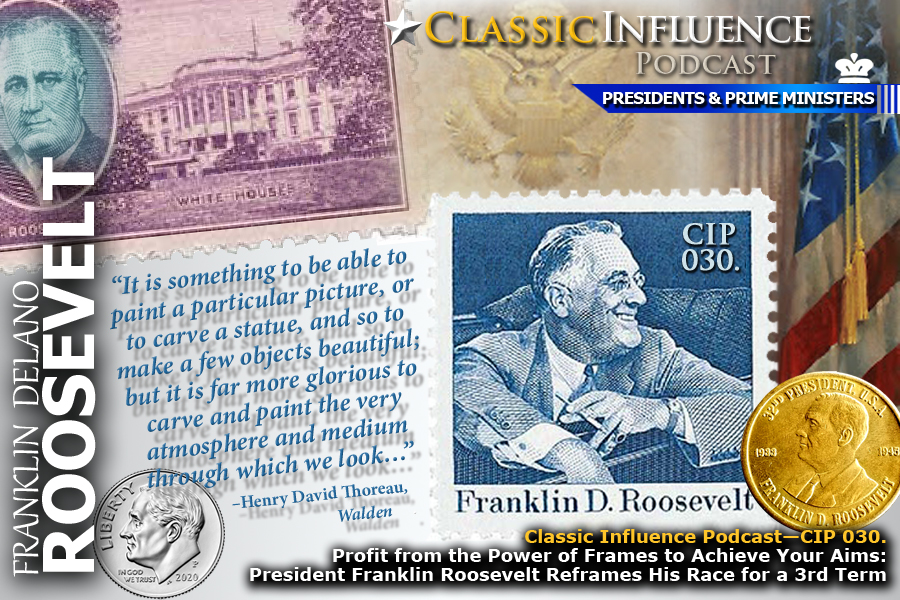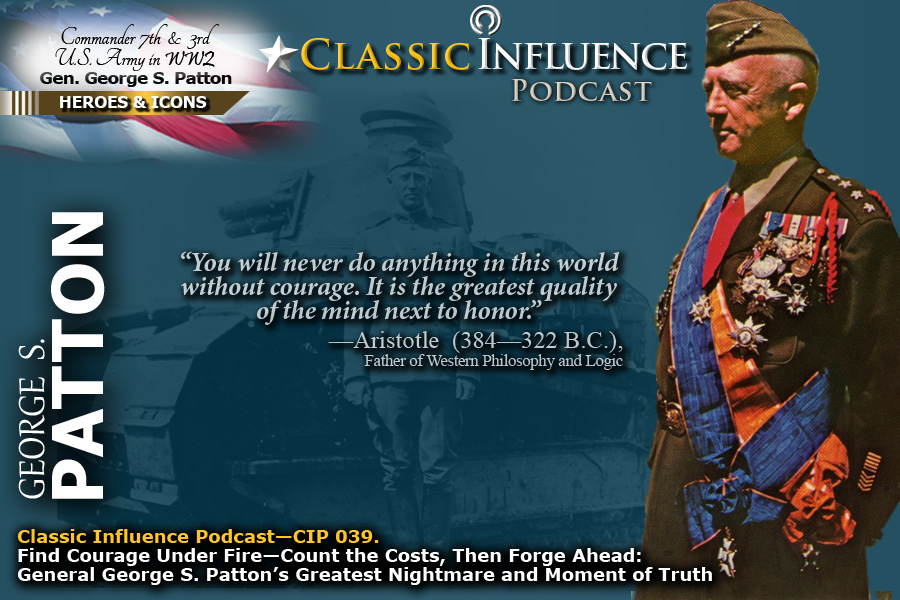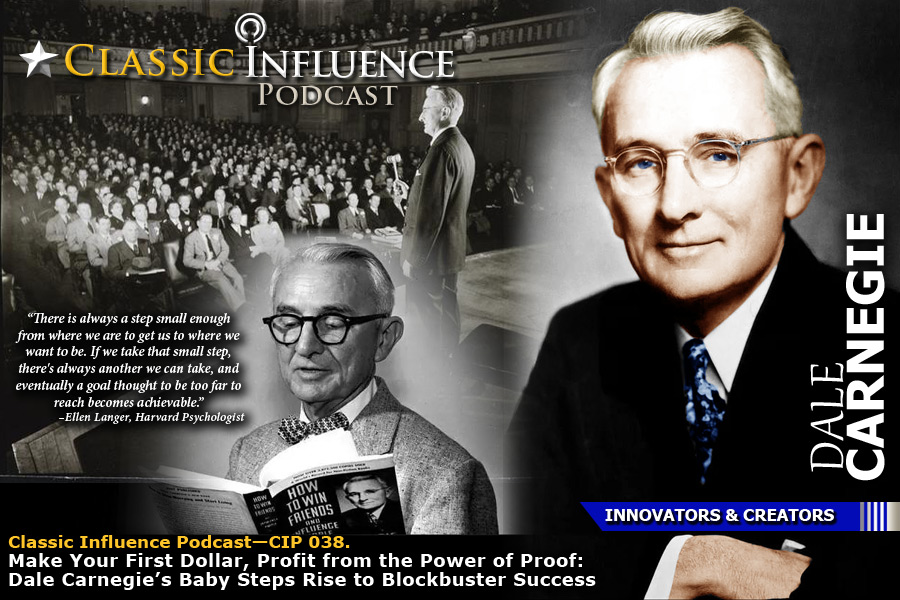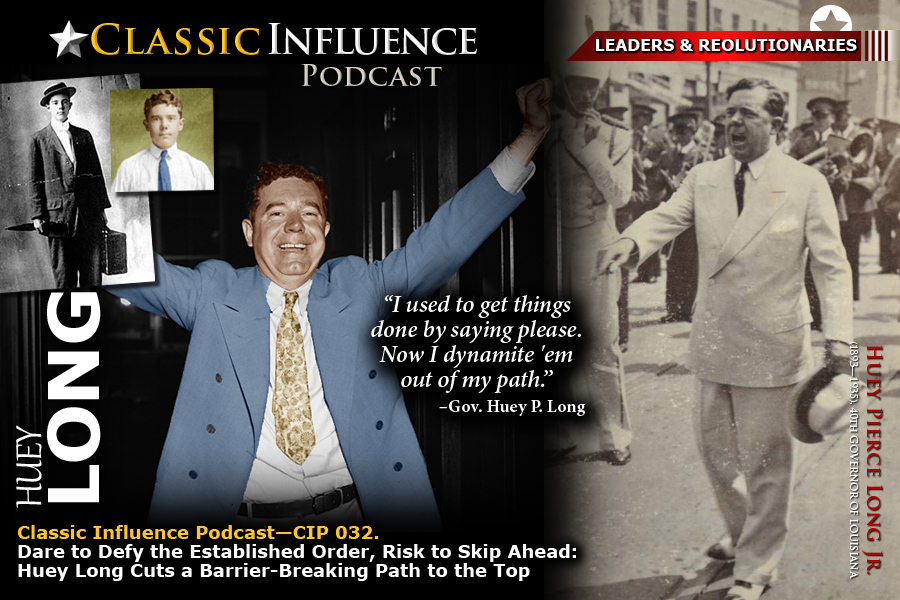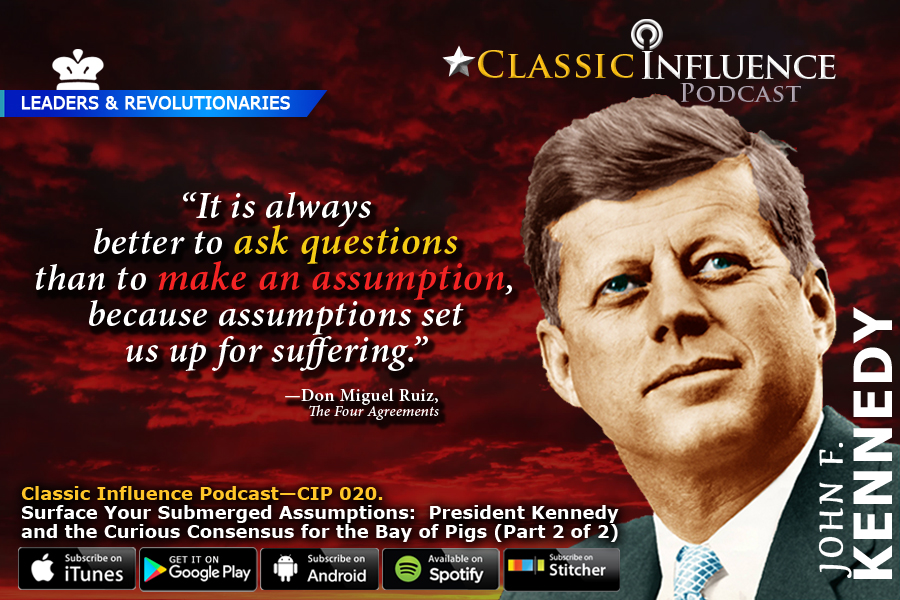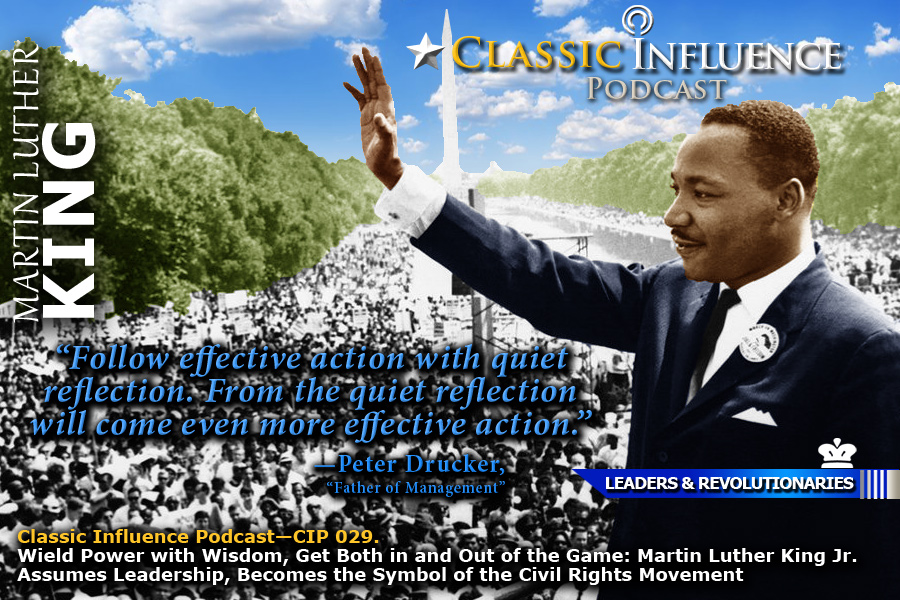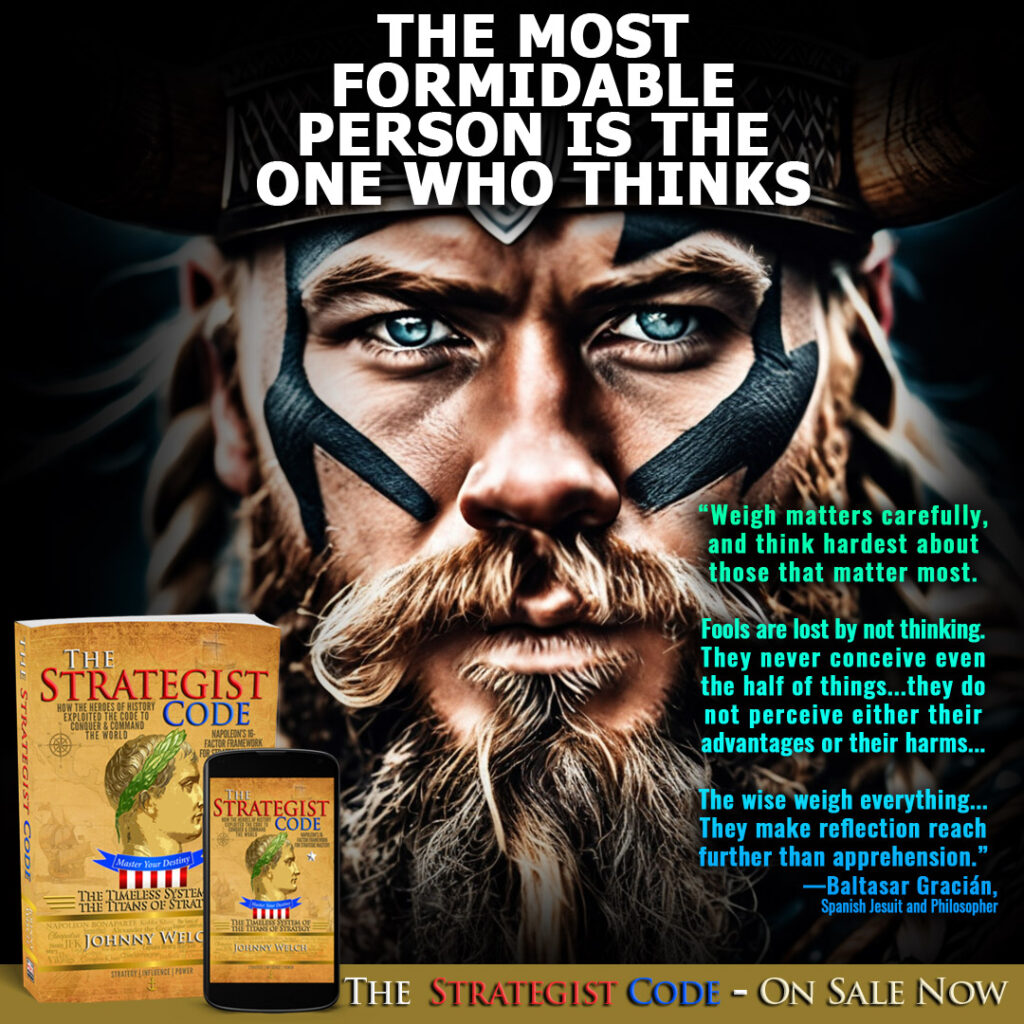Icons of Influence, Leadership & Power
List of Leadership Heroes and Villains from History
Learning from the Biographies of Heroic Historical Figures, Infamous Demagogues and Despots, and Other Famous People from the Pages of the Past
The ability to learn from and build on the lessons learned from the past, to accumulate the knowledge and wisdom gained from our predecessors, is one of the key factors that differentiates us from every other species on Earth. As Duke University professor of neuroscience Brian Hare explains, this is a critical part of what enabled homo sapiens to beat out the other species of humans (including Neanderthals and homo erectus), some of which were bigger, and had bigger brains.
In their book, Survival of the Friendliest, Hare and Woods write, “What allowed us to thrive while other humans went extinct was a kind of cognitive superpower: a particular type of friendliness called cooperative communication.” Not only does this allow us to “synchronize [our] behavior,” and “coordinate different roles,” but it also allows us to “pass on [our] innovations.” (p. xxv)
“We develop all of these skills before we can walk or talk, and,” Hare and Woods write, “they are the gateway to a sophisticated social and cultural world. They allow us to plug our minds into the minds of others and inherit the knowledge of generations.”(p. xxv)
Leaders and Influencers from Ancient History
The span of recorded history (or written history) is only about 5,000 years. What we refer to as “ancient history” covers the history of people on all continents beginning from approximately 3000 B.C. until the Middle Ages. Ancient history can be further divided into the Bronze Age, the Iron Age, Classical Antiquity, and Late Antiquity.
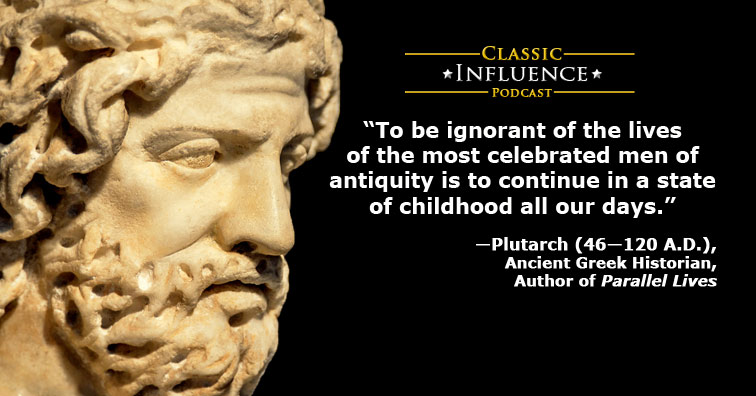
“The search after the great man is the dream of youth and the most serious occupation of manhood. We travel into foreign parts to find his works, if possible, to get a glimpse of him.”
Leaders and Influencers from the Bronze and Early Iron Age
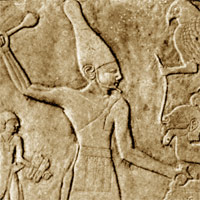
Narmer (Menes) (c. 3200 B.C.)
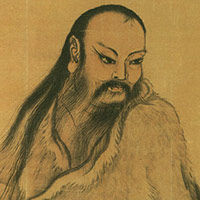
Fu Hsi (c. 2900 B.C.)
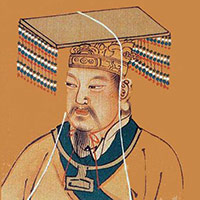
Yellow Emperor (2697–2597 B.C.)
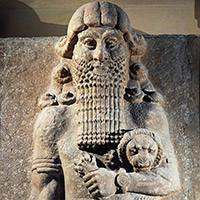
Gilgamesh (c. 2500 B.C.)
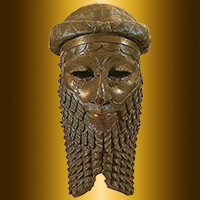
Sargon the Great (2270-2215 B.C.)
Sargon the Great was an ancient ruler of Mesopotamia most famous for conquering the Sumerian city-states. He was also known as a great military leader, tactician and strategist. Legend has it that Sargon was discovered as an infant floating in a basket on a river. From his humble beginnings, he came to build and lead one of ancient history’s greatest empires.http://classicinfluence.com/list-of-master-strategists/
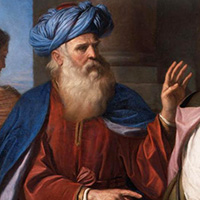
Abraham (1812-1637 B.C.)
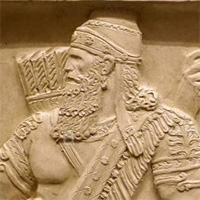
Hammurabi (c.1792-1750 B.C.)
Hammurabi was the first king of the Babylonian Dynasty. He began as a successful military leader, but is most famous for establishing the first set of recorded laws, known as Hammurabi’s Code.
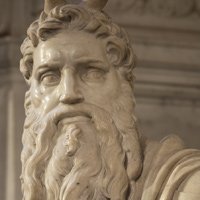
Moses (c. 1592 or 1391-1271 B.C.)
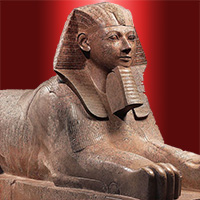
Hatsheput (1508-1458 B.C.)
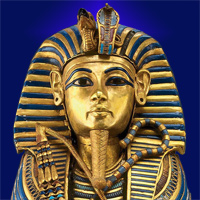
King Tutankhamun ("King Tut") 1342-1324 B.C.)
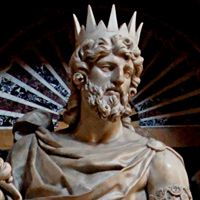
King David I (c.1035 - 972 B.C.)
Leaders and Influencers from Classical Antiquity
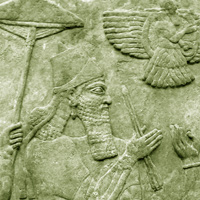
Ashurnasirpal II (c. 9th cent.. B.C.)
Ashurnasirpal II was the third king and a brutal conqueror of the Neo-Assyrian Empire. Along with his successful military conquests, he is also known for the consolidation of the Assyrian Empire. He is, however, also known for his unsuccessful siege of Tyre (unlike Alexander the Great in 332 B.C.). More than anything, however, Ashurnasirpal is remembered for the wickedly evil treatment of those he defeated. As he said himself,
“I built a pillar over against the city gate and I flayed all the chiefs who had revolted and I covered the pillar with their skins. Some I impaled upon the pillar on stakes and others I bound to stakes round the pillar. I cut the limbs off the officers who had rebelled. Many captives I burned with fire and many I took as living captives. From some I cut off their noses, their ears, and their fingers, of many I put out their eyes. I made one pillar of the living and another of heads and I bound their heads to tree trunks round about the city. Their young men and maidens I consumed with fire. The rest of their warriors I consumed with thirst in the desert of the Euphrates.”
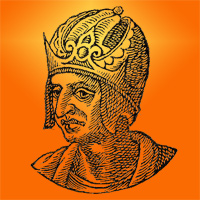
Hoshea (732-721 B.C.)
Hoshea was the last of the 19 kings of the Israelite Kingdom of Israel. Hoshea ruled from approximately 732 to 722 BCE. He was the last king of Israel before the Assyrian Empire conquered the kingdom and deported its people.
Hoshea’s reign was marked by political instability and conflict. He came to power through a coup against his predecessor, Pekah, with the help of the Assyrians. However, Hoshea’s allegiance to Assyria did not last long, and he attempted to form alliances with other regional powers to resist Assyrian dominance. This led to the Assyrian king, Shalmaneser V, launching a military campaign against Israel, besieging its capital, Samaria, for three years.
In 722 BCE, Samaria fell to the Assyrians, marking the end of the Kingdom of Israel. The Assyrians deported many Israelites and resettled the land with other populations. This event is commonly known as the Assyrian Captivity or the Exile of Israel.
Hoshea’s reign and the fall of Samaria are significant events in biblical and ancient Near Eastern history. The deportation of the Israelites had a lasting impact on the region, and the Assyrian conquest led to the dispersion of the ten northern tribes of Israel.
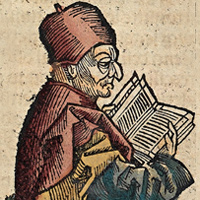
Solon (638-558 B.C.)
Solon was an Athenian leader, statesman, lawmaker and poet. He is often credited as the founder of Athenian democracy. The name Solon means “wise lawmaker,” and Solon more than lived up to the name with his efforts to fight against the tyranny of Athenian leaders, and political and moral decline in ancient Athens.
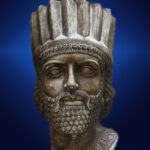
Cyrus the Great (c. 600-530 B.C.)
Cyrus II was the founder of the Persian Empire. Cyrus was a great conquerer, but he is most remembered for uniting different tribes (the Medes and the Persians) and for his religious tolerance as well as his magnanimity and generosity toward those he conquered.
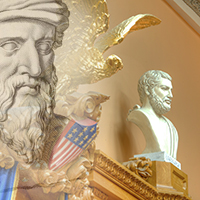
Cleisthenes (570-508 B.C.)
Cleisthenes was a leader in Ancient Athens. He is credited with bringing democracy to Athens through his reformations of the Athenian constitution. He is known by historians today as “the father of Athenian democracy.”
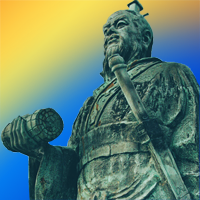
Sun Tzu (544-496 B.C.)
Sun Tzu was an ancient Chinese military general. He is most known for his expertise as a strategist, as recorded in The Art of War; a book which continues to influence experts in the fields of leadership and strategy to this day.
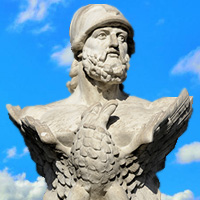
Cimon (510-450 B.C.)
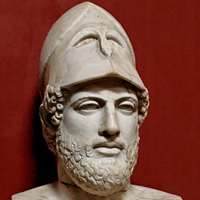
Pericles (495 - 429 B.C.)
Pericles was a prominent Greek statesman, orator, and general of ancient Athens during its Golden Age, who is often (though not universally) categorized by 20th century scholars as a populist. Plutarch writes that Pericles, to his own credit, given his aristocratic background, “…took his side, not with the rich and few, but with the many and poor…” Pericles is often remembered for his legendary oratory and for his influence on Athenian society, which earned him the title “the first citizen of Athens.” Pericles said: “We do not say that a man who takes no interest in politics is a man who minds his own business; we say that he has no business here at all.”
Alexander the Great (356-323 B.C.)
Beyond being a brilliant military tactician, Alexander the Great was a master of grand strategy. Always adopting a long-term perspective with an impressively broad scope, he was never thinking solely of how to outmaneuver an enemy on the battlefield. Along with the strategic use of military force, Alexander was also thinking of the relevant geopolitical and economic factors, the diplomatic means at his disposal, the intelligence assets he could exploit, how he would navigate the cultural differences and lead the people he conquered, what influence his actions would have on Greece, and how to maintain both the morale of his men, and the loyalty of his subjects back home. In essence,
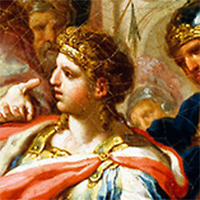
Alexander demonstrated a remarkable multi-dimensional grasp of grand strategy, which was essential to his vision of cultural exchange within his global, cosmopolitan empire. In the end, Alexander failed to achieve his dream; and, yet, across a wide array of different terrains, facing a range of diverse enemy forces, often two or three times the size of the Macedonian army, Alexander, not once defeated in battle, ultimately conquered the known world, and built an empire the likes of which no one had ever before seen. What’s more, he did all of this a long, long way from home. And he did it all before age 33.
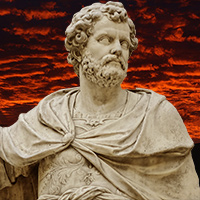
Hannibal (c. 248-182 B.C.)
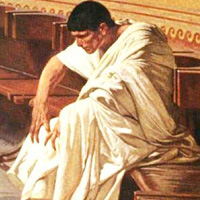
Catiline (108-62 B.C.)
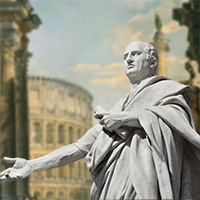
Cicero (106-43 B.C.)
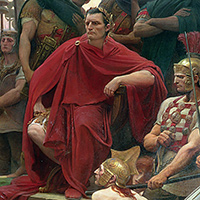
Julius Caesar (100-44 B.C.)
Named “Dictator for Life,” Julius Caesar was one of the most prominent leaders of ancient Rome and a significant agent of the transformation of the Roman Republic into the Roman Empire.
Mark Antony (83-30 B.C.)
Mark Antony is remembered as a pivotal figure in ancient Roman history. A loyal supporter of Julius Caesar, Antony helped him rise to the heights of power.
After Caesar’s assassination, Antony forged an alliance with Octavian (the future Augustus) and Lepidus, forming the Second Triumvirate that ruled Rome. He was a skilled military leader and politician, but his passionate romance with Egypt’s Queen Cleopatra would ultimately prove his downfall.
Antony’s alliance and favoritism toward Cleopatra, seen by many Romans as uncivilized and foreign, strained his relationship with Octavian. Their rivalry culminated in the naval Battle of Actium in 31 BC, where Octavian decisively defeated Antony and Cleopatra.
The defeated lovers responded by taking their own lives rather than face capture. Antony’s collaboration with Cleopatra and ultimate demise at Actium, enabled Octavian to seize total control as Rome’s first emperor, transforming the ancient republic into a centralized monarchy.
Mark Antony thus played an integral role in Roman history – by helping elevate Caesar, forging the Second Triumvirate, falling in love with the bewitching Cleopatra, and finally falling from grace in a drama that embodied the political upheaval of his turbulent age.
Cleopatra VII Philopator (69-30 B.C.)
Frequently depicted as a sexy femme fatale, Cleopatra stands as one of the most famous female rulers in recorded history. Flying in the face of popular myth, however, Cleopatra was not the stunning beauty that most people think. In contrast, it was her charisma and cunning political instincts, her hustle, savvy and self-belief that enabled Cleopatra to make an indelible mark on the world.
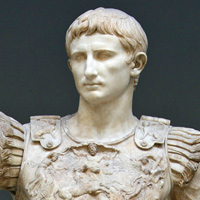
Augustus (63 B.C.-14 A.D.)
Marcus Vipsanius Agrippa (c. 63-12 B.C.)
Tiberius Caesar Augustus (42 B.C.-37 A.D.)
Tiberius succeeded Augustus as Rome’s second emperor, ruling from 14 to 37 A.D. A career soldier, he focused on maintaining stability rather than expanding Rome’s frontiers during his 23-year reign.
While Tiberius implemented some administrative reforms, his rule is marked by political intrigue, violence and growing paranoia. He conducted purges against those he perceived as threats, creating a climate of fear at the imperial court.
Tiberius eventually withdrew from Rome altogether, retiring to the island of Capri in 26 A.D. and leaving much of the governing to his trusted advisors. He developed a reputation for cruelty and tyranny during his later years.
Tiberius’ reign underscores some of the drawbacks of the principate system where all power was centralized in the emperor. Despite his flaws and controversies, he contributed to shaping and consolidating the imperial system that governed the early Roman Empire.
His nephew Caligula succeeded Tiberius after his death in 37 A.D. Tiberius is remembered as a transition figure between the more benevolent rule of Augustus and the tyrannical reigns that would follow.
Jesus Christ (0-33 A.D.)
Jesus Christ occupies a central place in Christianity as the Son of God and Messiah. Born in Bethlehem around 4 BC, Jesus lived in 1st-century Palestine under Roman occupation.
Jesus preached teachings of love, peace, mercy and justice that centered around the Kingdom of God. He spoke of faith, salvation and spiritual rebirth and embodied these principles through his life and actions.
Jesus gained followers through performing miracles like healing the sick, feeding large crowds with scarce resources, and raising people from the dead. His actions demonstrated divine authority and led many to proclaim him the promised Messiah.
The Gospels describe Jesus’ eventual arrest under the orders of Pontius Pilate, his crucifixion by the Romans, death and burial. However, his resurrection on the third day, as witnessed by his disciples, established the central tenet of Christian faith – that through Jesus, believers have the hope of eternal life.
Jesus’ life and teachings have shaped the Christian faith and influenced Western culture for over two millennia. The story of his sacrifice and resurrection forms the core message of Christianity by offering salvation and restoring humanity’s relationship with God.
Jesus Christ, considered the incarnation of God, is venerated as the Son, Savior and Messiah by Christians worldwide who strive to follow his teachings and example.
Boudicca (c. 1st cent.-60 A.D.)
Caratacus (c. 10-50 A.D.)
Caratacus was a legendary leader who resisted the Roman invasion of Britain for nearly a decade before finally being captured in 51 AD. He united the British tribes, including the Catuvellauni and Silures, against the invading Roman forces under Emperor Claudius.
The Romans made little headway against Caratacus at first. He achieved some military successes and inflicted losses on the Romans through his guerrilla tactics and use of chariots. His defiance against the Roman war machine made him a symbol of British resistance.
However, Caratacus was eventually betrayed by a rival British tribesman and captured. He was taken in chains to Rome where, according to the historian Tacitus, he delivered a stirring speech before Emperor Claudius.
Although now a prisoner, Caratacus pointed out that defeat was an inevitability for any valiant commander and spoke of the virtues of valor, loyalty and liberty that compelled him to fight the Romans. His speech made a powerful impression on Claudius and the Roman people, earning Caratacus sympathy even in defeat.
Caratacus’ prowess as a military leader and ability to rally British resistance against Roman occupation – for nearly a decade – ensured his place as a legendary figure in British history. His capture and speech in Rome represented the culmination of the Roman conquest of Britain and personified the British spirit of rebellion against foreign domination.
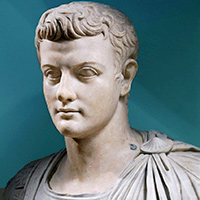
Caligula (12-41 A.D.)
Gaius Caesar Augustus Germanicus, better known as Caligula (meaning “little soldier’s boot”), was the third emperor of Rome. He is best remembered for his sadistic cruelty and sexual perversions, including incest with his sisters. He reportedly killed for mere amusement. At one of the games, he had an entire section of the audience thrown into the pit with the wild beasts because no gladiators remained and he was bored. He was also widely believed to be insane. He sent his troops on nonsensical military missions to fight non-existent armies, claiming that they won important victories while they were away. Perhaps most famously, he once appointed his horse as a consul. He was assassinated by his own guards after ruling for less than 4 years (37-41 A.D.).
Nero (37-68 A.D.)
Leaders and Influencers from Late Antiquity
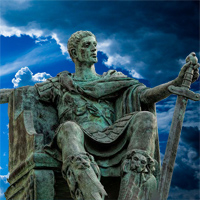
Constantine (280-337 A.D.)
Leaders from the Middle Ages
(circa 2nd to 15th century)
Leaders and Influencers from the Dark Ages or the Early Middle Ages
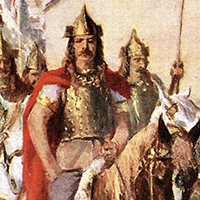
Alaric the Visigoth (c. 370-410 A.D.)
Alaric the Visigoth was a key figure in the decline of the Western Roman Empire. He was the first king of the Visigoths, a Germanic tribe.
Alaric is best known for sacking Rome in 410 A.D., a shocking event that signaled the crumbling power of Rome. For almost 800 years, no enemy had breached the city’s legendary walls – until Alaric. The sack sent shockwaves throughout the empire.
Alaric’s motives were complex. He sought to carve out territory and gain concessions from the weakened Western Roman Empire for his displaced Visigoth people. He also hoped to pressure the Western Roman Emperor Honorius into negotiations.
After sacking Rome, Alaric led his forces into southern Italy where he died in 410 A.D. His conquest of Rome, the eternal city and heart of the empire, demonstrated Rome’s waning influence and exposed its vulnerability to external threats that would ultimately lead to its collapse.
Alaric remains a symbol of the changing balance of power during Rome’s decline. His unprecedented capture of Rome reveals the fragility of Rome’s greatness and the limits of its military might in the face of determined “barbarian” invaders.
Alaric’s motivations were complex. He sought to secure lands and concessions for his Visigothic people, who had been displaced by other invading forces. He also aimed to exert pressure on the Western Roman Emperor, Honorius, and negotiate favorable terms.
After the sack of Rome, Alaric led his forces into southern Italy, where he died in 410 AD. His legacy remains as a symbol of the shifting power dynamics and the weakening grip of the Roman Empire in the face of external threats.
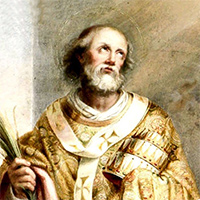
Pope Leo I (400-461 A.D.)
Known as Leo the Great, or Saint Leo, Pope Leo I is considered by many to be one of the most important leaders in the long history of the Catholic Church. Most famously, he persuaded Attila the Hun to abandon his plans to invade Italy. Rather than surrounding himself with intellectually inferior sycophants, Leo surrounded himself with learned men who were capable of informing his decisions and improving and strengthening his judgment. He is known as “the Great” because, as Catholic Exchange writes, Leo “took on just about every major heresy of his time, established the dogmas of Christ as being fully man and fully God, asserted the [primacy] of the papacy, and staved off a barbarian invasion of Rome.”
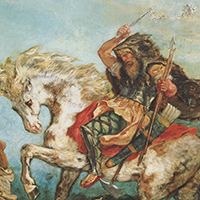
Attila the Hun (405-453 A.D.)
Odoacer the Ostrogoth (433-493)
Justinian I "Justinian the Great" (482-565)
Justinian the Great ruled Byzantium from 527-565 AD, leaving an enduring mark on the empire. He promulgated the Justinian Code, a comprehensive legal framework that became the basis of Western law and jurisprudence.
Under Justinian, the Byzantine Empire reached its greatest territorial extent through Belisarius’ conquests of Italy, North Africa and parts of Spain, aiming to restore the Roman Empire, if only in the East.
Justinian also commissioned famous architectural works like the Hagia Sophia in Constantinople, now a UNESCO World Heritage site and masterpiece of Byzantine art.
However, Justinian faced challenges including invasions by Persians and barbarians, religious disagreements and crop failures that exhausted imperial reserves.
Justinian’s reign transformed the empire, elevating Byzantium as the preeminent Christian power through his institutive, military and cultural achievements – earning him the epithet “the Great.” His contributions shaped Byzantine civilization, influencing Medieval and modern Europe.
Wu Zetian (624-705)
Wu Zetian, also known as Empress Wu, was a remarkable figure in Chinese history who lived from 624 to 705 AD. She was the only female emperor in Chinese history and ruled during the Tang Dynasty. Wu Zetian started as a concubine of Emperor Taizong and later became the wife of his successor, Emperor Gaozong.
After Emperor Gaozong’s incapacitation, Wu Zetian assumed increasing power and eventually declared herself the ruling empress in 690 AD, establishing the Zhou Dynasty. Her reign lasted until her abdication in 705 AD.
Wu Zetian implemented numerous reforms and policies that aimed to consolidate and strengthen her rule. She enacted administrative and social reforms, promoted education, and appointed officials based on merit rather than birthright.
Wu Zetian also had a profound impact on the arts and culture of the Tang Dynasty. She supported Buddhist institutions, constructed grand Buddhist temples, and sponsored artistic and literary endeavors.
Despite her achievements, Wu Zetian’s rule was not without controversy and opposition. She faced resistance from traditionalists who opposed a female ruler and her autocratic style of governance. Historical accounts vary in their portrayal of Wu Zetian, with some depicting her as an effective ruler while others emphasize her ruthlessness.
Wu Zetian’s legacy is complex and continues to be debated. Her rise to power as a woman in a predominantly male-dominated society and her enduring impact on Chinese history make her a fascinating and influential figure in Chinese and world history.
Khosrau II (c. 570-628)
Khosrau was the last Sasanian Shah (king) of Iran. Also called Khosrau Anushirvan or Khosrau the Just, Khosrau I reigned from 531 to 579 AD and is considered one of the greatest rulers in the history of the Sassanian Empire. He ascended to the throne after a period of internal turmoil and embarked on various reforms to strengthen his empire.
Khosrau I implemented administrative, military, and economic reforms, focusing on centralizing power, improving governance, and expanding the empire’s territory. His reign witnessed significant military successes, including the conquest of Yemen, Armenia, and parts of the Byzantine Empire.
Khosrau I also patronized the arts, literature, and sciences. He established a prestigious academy known as the Academy of Gundishapur, which became a center of learning and scholarship in the empire. It attracted scholars from various fields, contributing to advancements in medicine, philosophy, and other disciplines.
Despite his accomplishments, Khosrau I faced several challenges during his reign, including conflicts with the Byzantine Empire and internal revolts. Towards the end of his rule, he faced a rebellion led by his own son, Kavadh II, which resulted in his deposition and subsequent death.
Khosrau I’s reign left a significant impact on the Sassanian Empire. His reforms and military conquests brought about stability, prosperity, and territorial expansion. His patronage of learning and culture contributed to the intellectual and scientific advancements of the time. Khosrau I is remembered as a prominent figure in Persian history, known for his effective rule and contributions to the Sassanian Empire.
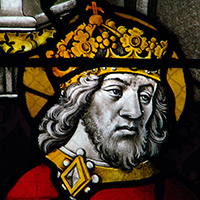
Charlemagne (742-814)
Charlemagne, or Charles the Great, was King of the Franks and the first Western Emperor since antiquity. From his capital in Aachen, Germany, he ruled a vast empire spanning Western and Central Europe.
A skilled warrior and conqueror, Charlemagne expanded his empire by subduing neighboring kingdoms through military campaigns, negotiations and leniency towards defeated enemies.
A deeply religious Christian, Charlemagne saw himself as ordained by God to spread the faith. He played an active role in Church affairs and promoted missionary work across his realm.
Charlemagne actively supported intellectual and artistic revival known as the Carolingian Renaissance. He gathered scholars at his court and enthusiastically promoted learning, literature and the arts.
Charlemagne’s imperial coronation by the Pope in 800 solidified the power dynamics in Christendom, establishing the Emperor and Papacy as twin pillars of religious and secular authority in the West.
For these reasons, Charlemagne is remembered as a visionary patron of culture , a secular counterpart to the Pope, and the founder of a unified Christian Europe – earning him the title “Father of Europe.” His reign marked a rebirth of imperial power and cultural efflorescence in the West after the decline of Rome.
Ragnar Lothbrok (circa 9th century)
Ragnar Lothbrok occupies an epic place in Norse lore as a dynamic warrior-king, adventurer and cunning strategist who shaped the course of Viking history through his daring raids and conquests.
According to legend, Ragnar launched Viking longships that swept across England, France and Scandinavia during the 9th century. His ferocity in battle and strategic brilliance earned him fearsome renown. The sagas recount tales of Ragnar winning difficult battles through his crafty strategies like disguising his ships as floating islands to surprise unsuspecting enemies.
One of Ragnar’s most significant exploits was the “Great Heathen Army’s” strategic invasion of England, which led to the capture of the wealthy city of York. This victory opened up England to further Viking settlement and raids, sparking the Norse occupation of large swathes of the British Isles.
Ragnar’s personal life also illustrates his strategic mind. His marriages to Lagertha and Thora, along with his many sons who became renowned Vikings themselves, point to Ragnar’s ability to achieve his aims through careful planning and manipulation of circumstances.
While some historians debate the authenticity of some of Ragnar’s more mythical accomplishments, his role as a romanticized symbol of Viking ambition, warrior spirit and strategic acumen has ensured his place as an immortal figure in Norse lore – one of the great heroes whose cunning and strategic legacy continues to captivate the imagination.
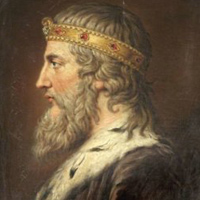
King Alfred the Great (849-899)
Alfred the Great was king of the Anglo-Saxons from 886 to 899. When he first acceded to the throne of Wessex in April of 1871 he struggled against Viking invasions for several years. Alfred is remembered as one of the most important rulers in English history and is commonly referred to as “Alfred the Great.”
Alfred came to power during a time of Viking invasions and was faced with the challenge of defending his kingdom against these ruthless raiders. He successfully led his army in battles against the Vikings and implemented a series of military reforms to strengthen his forces. He also established a system of fortified towns called burhs to protect against Viking incursions.
Alfred was not only a skilled military leader but also a patron of learning and education. He promoted the use of English as a language of government and encouraged the translation of important texts into English. He himself translated works from Latin, contributing to the preservation of knowledge and literature.
Alfred’s reign also saw significant legal and administrative reforms. He compiled a code of laws based on earlier Anglo-Saxon customs and introduced reforms to improve the administration of justice.
Alfred’s legacy extends beyond his military and administrative achievements. He is considered a national hero in England, revered for his efforts in defending and unifying the kingdom against Viking threats. His reign laid the foundation for the eventual formation of the Kingdom of England and his efforts to promote learning and education played a crucial role in the development of English culture and identity.
Alfred the Great’s reign is seen as a pivotal period in English history, marking a turning point in the face of Viking aggression and the preservation of English identity. His accomplishments earned him the title “the Great” and his impact can still be felt in modern-day England.
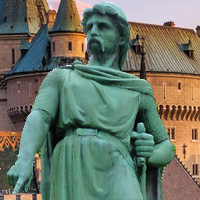
Rollo, Count of Rouen (c. 860-930)
Rollo was a great Viking leader who became the first ruler of Normandy, a region in northern France. Following the Siege of Chartres in 911, Charles the Simple, the king of West Francia, signed a treaty with Rollo, which included the gifting of large tracts of land. In exchange, Rollo had to convert to Christianity swear allegiance to Charles, and pledge to defend West Francia from Viking raiders. Rollo became the Count of Rouen, and his offspring and that of his followers became known as Normans.
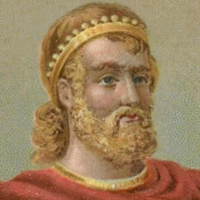
Cnut the Great (c. 990-1035)
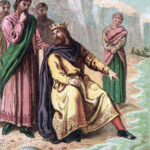 as the land on which I am sitting is mine, and no one has resisted my overlordship with impunity. I command you, therefore, not to rise on to my land, nor to presume to wet the clothing or limbs of your master.’ But the sea came up as usual, and disrespectfully drenched the king’s feet and shins. So jumping back, the king cried, ‘Let all the world know that the power of kings is empty and worthless, and there is no king worthy of the name save Him by whose will heaven, earth and the sea obey eternal laws.'”
as the land on which I am sitting is mine, and no one has resisted my overlordship with impunity. I command you, therefore, not to rise on to my land, nor to presume to wet the clothing or limbs of your master.’ But the sea came up as usual, and disrespectfully drenched the king’s feet and shins. So jumping back, the king cried, ‘Let all the world know that the power of kings is empty and worthless, and there is no king worthy of the name save Him by whose will heaven, earth and the sea obey eternal laws.'”Leaders and Influencers from the High Middle Ages
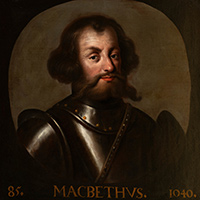
Macbeth, King of Scotland (c.1005-1057)
Edward the Confessor (c.1005-1066)

William the Conqueror (1027-1087)
William I was the first Norman king of England, reigning from 1066, when he defeated Harold Godwinson at the Battle of Hastings, until his death in 1087. The Normans (or House of Normandy) originates from the Duchy of Normandy, which grew out of the 911 A.D. treaty between Charles the Simple of West Francia and the Viking leader Rollo.
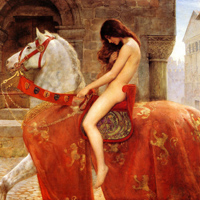
Lady Godiva (circa 1066-1086)
David I of Scotland (1083-1153)
Zhu Xi (1130-1200)
Richard I "Richard the Lionheart" (1157-1199)
Richard the Lionheart was one of England’s most renowned crusader kings, though he spent most of his reign abroad on military campaigns.
Richard joined the Third Crusade alongside kings from France and Germany in an attempt to strategically retake Jerusalem from Saladin’s Muslim forces. Though Jerusalem remained beyond their grasp, Richard’s daring strategic exploits on the battlefield earned him the moniker “Lionheart” and a reputation as one of medieval Europe’s greatest warrior kings.
As a ruler, Richard faced challenges. His absences strained England financially and caused conflict with nobles who resented his rule. He was even imprisoned by the Holy Roman Emperor on his journey home from the crusade.
Richard died in 1199 from a battle wound. Though his reign left England little better off, Richard’s heroic persona as a chivalrous crusader king who defended Christianity against the infidel has always captivated the English imagination. His legend comes to embody the archetypal English knight – brave and noble to a fault.
Richard’s famed military prowess and role in the crusades overshadow his deficiencies as strategist and monarch, ensuring his place as an iconic historical figure that persists in English lore. Many remember him more for his legend than his actual strategic legacy.
Genghis Khan (1162-1227)
A master strategist, Genghis Khan is remembered as one of the great conquerors in human history. Through his brutal conquests, Genghis Khan first unified the rivaling nomadic tribes of Mongolia becoming the 1st Great Khan of the Mongolian Empire in 1206 A.D. With his Mongolian horde of ferocious warriors, Genghis then took the world by storm, first by conquering Asia, and then most of Eurasia, building what eventually became the largest contiguous empire in history.
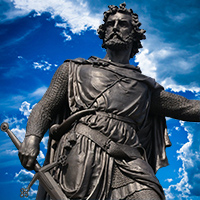
William Wallace (1270-1305)
Leaders and Influencers from the Late Middle Ages (Renaissance)
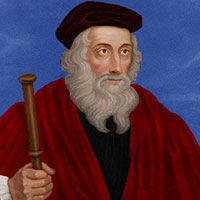
John Wycliffe (1328-1384)
Wycliffe was an Oxford professor and and influential critic within the Roman Catholic Church. He is considered an important figure in the lead up to the Protestant Reformation. Wycliffe supported the translation of the Bible into common vernacular so that it would be accessible to the masses. In 1415, decades after his death, the Council of Constance declared Wycliffe a heretic and banned his writings.
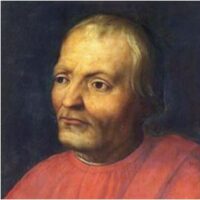
Giovanni di Bicci de' Medici (1360-1429)
Joan of Arc (1412-1431)
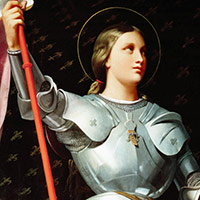
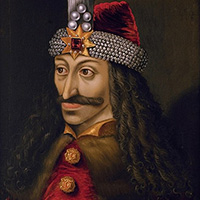
Vlad the Impaler "Dracula" (1431-1476)
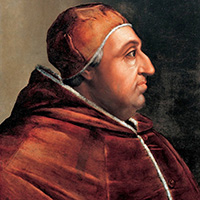
Alexander VI (1431-1503)
Born Rodrigo Borgia, Pope Alexander VI was one of the most corrupt and controversial popes of Renaissance popes, a period marked by a number of less than virtuous church leaders. Nevertheless, Alexander VI was a master strategist and through his foreign policy he gained a number of advantages for his family and allies.
Leaders from the Early Modern Period
(circa 16th to 17th century)
Leaders and Influencers from the Age of Discovery, Age of Exploration
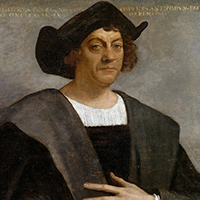
Christopher Columbus (1451-1506)
Christopher Columbus, an Italian explorer and navigator, completed four transatlantic voyages that opened the Americas to European colonization and changed world history.
Born in Genoa in 1451, Columbus sought to secure Spanish royal backing for an expedition to reach Asia by traveling west. On October 12, 1492, he made landfall in the Bahamas, mistakenly believing he had reached Asia. This voyage marked the beginning of sustained European contact with the Americas.
On subsequent voyages, Columbus explored Caribbean islands, Central America and South America, seeking gold and other riches while claiming the lands for Spain. However, he had in fact reached a “New World” unknown to Europe.
While Columbus’s voyages connected the Eastern and Western hemispheres and contributed to global trade and cultural exchange, they also inflicted profound suffering on the native peoples of the Americas. Under Columbus’s governorship of the Caribbean colonies, European diseases, exploitation and violence decimated indigenous populations.
Overall, Columbus’s expeditions ushered in the age of European colonialism in the Americas. His “discovery” opened the way for the conquest and settlement of the New World by European powers, transforming global history. Columbus thus remains a complex and controversial figure – seen as an explorer, governor, oppressor, and pivotal figure in world history.
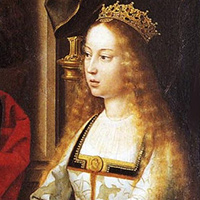
Isabella I of Castile (1451-1504)
Isabella I, Queen of Castile and León, is a towering figure in Spanish history. Through her marriage to Ferdinand II of Aragon, Isabella united the kingdoms of Castile and Aragon, forging the foundation of modern Spain.
Isabella is best remembered as the patron who funded Christopher Columbus’ expeditions in 1492 that opened the Americas to Spanish conquest and colonization. By claiming new lands for Spain, Columbus’s voyages expanded Isabella’s empire and Spain’s global reach.
Isabella and Ferdinand earned the title “The Catholic Monarchs” for conquering Islamic lands in Spain and funding the Spanish Inquisition. Their conquest of the Emirate of Granada in 1492 finally ended almost eight centuries of Islamic rule in Spain and unified the kingdoms under Ferdinand and Isabella’s Catholic reign.
Isabella was a shrewd ruler with a sweeping strategic vision. She overhauled laws, institutions and taxation. She revitalized trade and built Spain’s first standing army. She promoted scholars, artists and explorers at her court, helping usher in the golden age of Spanish art and culture.
Despite setbacks like the mass exile of Spain’s Jews in 1492, Isabella transformed a fractured land of medieval kingdoms into a unified and expanding world power through force of will, strategic acumen and religious fervor – becoming an iconic symbol of Spain’s “Imperial Golden Age.”
Isabella’s vast ambitions, ability to consolidate power and patronage of discovery earned her the epithet “The She-Wolf of Spain” and made her the inspiration for the most powerful piece on the chessboard: the regal and far-seeing Queen.
Ferdinand II (1452-1516)
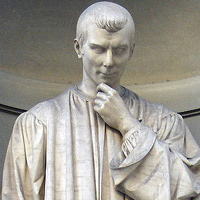
Niccolo Machiavelli (1469-1527)
Niccolò Machiavelli was an Italian diplomat, historian, humanist, and writer during the Italian Renaissance. A master political strategist, Machiavelli moved in elite circles, interacting with the Medici family, the Popes, and other prominent figures of his time.
Machiavelli served as a Florentine diplomat and official for 14 years under the Medici rulers. He socialized with the humanist circle centered around the Medicis, befriending thinkers like Francesco Guicciardini and meeting artists like da Vinci and Michelangelo.
However, the Medicis later accused Machiavelli of conspiring against them and he was imprisoned and tortured. This experience shaped his perspective on the brutal and unscrupulous nature of politics revealed in his political treatises.
Machiavelli was also a contemporary of the infamous Borgia family, particularly Pope Alexander VI and his sons Cesare and Juan. The ruthless tactics employed by the Borgias to gain and maintain power in Renaissance Italy deeply impressed Machiavelli. Many believe his work The Prince was inspired by Cesare Borgia’s rise and fall.
Overall, Machiavelli’s thought was shaped as much by his interactions with historical figures like the Medicis and Borgias as by the theoretical treatises and histories he produced. His personal experiences amidst the power struggles, treachery and violence at the heart of Italian Renaissance politics led him to pioneer a new “realistic” approach that prioritized the pragmatic goals of the state over conventional morality.
Though best remembered today for his writings on political strategy, Machiavelli’s life intersected with the major political, religious and intellectual currents of his time. His prominent place within Renaissance society gave him a unique vantage point from which to observe and critique the bitter realities of power, authority, and governance.
Cesare Borgia (1475-1507)
Cesare Borgia emerged during the Italian Renaissance, an era of great cultural, intellectual and artistic flourishing. Born to Pope Alexander VI in 1475, Cesare entered the clergy at a young age and became a cardinal at age 18.
However, Cesare’s interests lay more in warfare and politics than religion. With his father’s support, he resigned from the cardinalate in 1498 to pursue a secular career.
Cesare swiftly proved himself a talented military leader and ambitious politician. His father enabled his rise by arranging marriages for him, granting him land, and appointing him commander of the papal armies.
Cesare conquered parts of central Italy through a blend of military might, deception and treachery. He styled himself a patron of the arts with a goal of unifying Italy under his rule. However, his methods were often ruthless, employing assassinations, torture and executions against his enemies.
Cesare’s court attracted prominent intellectuals of the time, including the famed historian Machiavelli. Machiavelli briefly served as Cesare’s advisor and diplomat. Some scholars believe the military and political leader, and one-time cardinal, was inspiration behind the infamous 16th century political treatise, The Prince, by Niccolò Machiavelli, who was briefly at the Borgia court. However, the emotional and often impulsive Cesare Borgia was more a tactician than a strategist, and many historians hold that Lorenzo de’ Medici was Machiavelli’s exemplar in The Prince.
Cesare Borgia’s meteoric ascent and masterful, though unscrupulous, wielding of political power would secure his place in history as an archetypal Renaissance prince and a model for future ambitious leaders to emulate or fear.
Ferdinand Magellan (1480-1521)
Ferdinand Magellan was a Portuguese explorer who led the first expedition to sail around the world. He is best known for leading a bold voyage aimed at finding a western route to the lucrative Spice Islands of East Asia.
Magellan was born around 1480 in Portugal. In 1519, he set sail with five ships under the Spanish crown. After navigating dangerous waters and facing many hardships like mutinies and conflicts with local tribes, Magellan’s expedition reached the Pacific Ocean by sailing through the strait that now bears his name—the Strait of Magellan.
Magellan’s small fleet of ships crossed the vast Pacific Ocean, reaching the Philippines in 1521. Tragically, it was here that Magellan was murdered by local tribes during a battle on the island of Mactan. Despite Magellan’s death, one of his ships, the Victoria, completed the circumnavigation under the command of Juan Sebastián Elcano, becoming the first recorded expedition to sail entirely around the world.
Magellan’s voyage had significant implications. It provided compelling evidence that the Earth was indeed round. It It was also the catalyst for tremendous interest in further maritime expeditions. Magellan’s circumnavigation also opened up new trade routes and paved the way for future European colonial expansion.
Along with his successor, Juan Sebastián Elcano, in their celebrated circumnavigation, Ferdinand Magellan stands amongst a constellation of other leading historical figures in the Age of Exploration, including legends like Marco Polo, Christopher Columbus, John Cabot, Amerigo Vespucci, Hernán Cortés, Sir Francis Drake, Sir Walter Raleigh, James Cook, Roald Amundsen, and Ernest Shackleton.
Leaders and Influencers from the Reformation
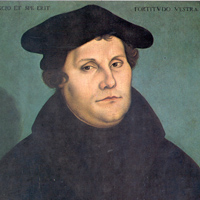
Martin Luther (1483-1546)
MARTIN LUTHER TAKES A STAND: On October 31, 1517, a humble, scholarly, and deeply religious Augustinian monk and theology professor changed the course of human history when he nailed his Ninety-Five Theses to the door of the All Saints’ Church.
Challenging the authority and railing against the corruption of the Church, all while undermining important sources of revenue, particularly the sale of indulgences (selling the forgiveness of sins and the salvation of dead relatives), Martin Luther’s Ninety-Five Theses put him on a collision course with the mighty Roman Catholic Church.
The idea that believers are justified by faith alone was an epic blow to the power and authority of the Church, a radical challenge that would trigger a crisis of faith in Christianity. “The church was everywhere with her claim to rule over men’s daily lives and over their souls. All progress was conditioned on breaking her claims, and probably nothing could have done it so thoroughly as this idea of justification by faith only.”1490
The fallout was sweeping, profound and immediate.1491 And it included a revolutionary rethinking of authority and leadership that went well beyond the church. Martin Luther had landed “…a mortal blow at the great hierarchy of privilege and…tyranny built up by the Middle Ages.”1492 With Gutenberg’s printing press running at full speed by this time, Pope Leo X was determined to quickly silence this dangerous critic and force him to recant his Theses before any more damage could be done. But when Luther was ordered to retract his arguments he refused. Instead, he began to give public talks, debating the need for church reforms.Orta66
By 1521, Luther was declared a heretic and excommunicated. He was later forced to attend a formal Imperial hearing before the Holy Roman Emperor, Charles V, as well as princes, imperial electors, and other dignitaries. The Archbishop of Trier again urged Luther to recant his Theses. Fearing that he might be burned at the stake, Luther asked for time for further consideration. After a night of prayer and reflection, he returned to the hearing inside the palace and once again refused, telling the assembly that he could not recant, “for to go against conscience is neither right nor safe.”Orta66
He then concluded with the now famous words, “Here I stand, I can do no other.”Orta66
Condemned as an outlaw with his life now in peril, Luther escaped to Wartburg Castle where he was granted sanctuary by a political ally, Frederick the Wise, Elector of Saxony. But his work was essentially done. Indeed, Martin Luther’s bold stand for his beliefs sparked the Protestant Reformation and forever changed the face of Christianity and relationships of power and authority across the Western World.
Henry VIII of England (1491-1547)
Henry VIII ruled England from 1509 until his death in 1547. He is known for his tumultuous reign characterized by religious upheaval, power struggles, and his many marriages.
Henry became king at 17. Initially, he focused on military campaigns, seeking glory on the battlefield and asserting England’s power in Europe.
One defining moment in Henry’s reign was breaking with the Catholic Church, triggering the English Reformation. When the Pope refused to annul Henry’s marriage to Catherine of Aragon, Henry declared himself head of the Church of England, separating England from Rome.
Henry’s desire for a male heir led him to marry six times. His relentless pursuit eventually resulted in the birth of his only surviving son, Edward.
Henry’s reign witnessed significant religious and political upheaval in England that changed the monarchy and Church. Despite his controversial legacy, Henry remains one of the most notable English monarchs due to his dramatic life and momentous reforms.
John Calvin (1509-1564)
Catherine de' Medici (1519-1589)
Catherine de’ Medici, born in Florence in 1519, navigated her way to becoming queen consort of France through her marriage to Henry II in 1533. After Henry’s death in 1559, Catherine took the helm as regent for her three young sons.
Catherine played an influential role in 16th century France, steering the nation through the storm of tensions between Catholics and Protestants known as the Wars of Religion. She was a shrewd politician, aiming to maintain stability in a divided kingdom.
As regent, Catherine faced many obstacles: the raging religious strife, plots against the throne, and conflict among nobles. She tried to reconcile Catholics and Protestants but failed, and the conflicts grew.
Catherine de’ Medici is associated with the St. Bartholomew’s Day Massacre of 1572, where thousands of Protestants were cut down in Paris and beyond. Historians debate Catherine’s direct role but agree she tacitly approved the massacre, which deeply shook France’s religious and political foundation.
Beyond politics, Catherine served as a patron of the arts, guiding literature, music, and architecture in France to new heights.
Catherine de’ Medici died in 1589, leaving behind a complex legacy that remembers both a formidable queen who navigated treacherous waters, yet also a powerful figure who helped shape France’s course.
Ivan IV "Ivan the Terrible" (1530-1584)
Ivan IV, commonly known as Ivan the Terrible, was the Grand Prince of Moscow from 1533 to 1547 and the first Tsar of Russia from 1547 to 1584. He was born on August 25, 1530, in Kolomenskoye, near Moscow.
Ivan the Terrible is known for his complex and controversial reign. During his early years as Grand Prince and later as Tsar, he implemented significant political reforms, centralizing power and strengthening the Russian state. He also expanded Russia’s territory through military campaigns, notably against the Kazan Khanate and the Astrakhan Khanate, adding vast territories to the Russian realm.
However, Ivan’s reign also saw a darker side. He was known for his extreme and often brutal methods of governance. His despotic rule led to widespread purges, executions, and political repression. In 1565, Ivan created the Oprichnina, a separate state within Russia governed by his personal militia, which was responsible for carrying out acts of violence and terror.
Beyond politics, Ivan the Terrible also supported culture and the arts, funding architectural wonders like St. Basil’s Cathedral in Moscow and establishing Russia’s first printing press.
Personal tragedies later darkened Ivan’s reign, including the loss of his wife and eldest son, fueling his unpredictable and violent behavior. He eventually died on March 18, 1584.
Ivan the Terrible’s rule left an indelible mark on Russia’s history and development. His political and territorial reforms laid the groundwork for the Russian Empire that would emerge in later centuries. However, his cruel governance and reputation as a despot have also shaped his complex legacy as one of history’s most contested figures.
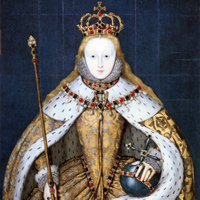
Elizabeth I, Queen of England (1533-1603)
Given the tumultuous shifting powers in England at the time, and the barriers against her, both as a woman and a Protestant, it was shrewd strategic maneuvering that enabled Queen Elizabeth I of England to ascend to the throne in the first place.
Once in power, rather than succumbing to the internal conflicts of a nation torn by religious division, she looked to her people’s common interests and focused the nation on increasing prosperity instead.
Overcoming domestic rebellions, she exploited the threat of foreign invaders to further unify her people, including the threat posed by Pope Pius V, who decreed that anyone who murdered the “heretical” Queen would be forgiven.
Further, rather than attempting to skirt the issue of sex, Elizabeth embraced her femininity, openly acknowledged the differences between her, as a woman, and the typical monarch, and, ultimately, created a new model for female leadership. Known as “The Virgin Queen,” she cleverly exploited the empty throne beside her to achieve certain diplomatic aims, at last insisting that she was married to her realm and her people.
A cunning strategist, Elizabeth also created a network of spies—the 16th century predecessor of MI6, Britain’s Secret Intelligence Service—to achieve her strategic goals.
Under her leadership, England become a major European power, an empire which would dominate the world for the next three centuries. Her influence was, in fact, so complete that the latter half of England’s 16th century became known as England’s “Golden Age,” and the “Elizabethan Era.”
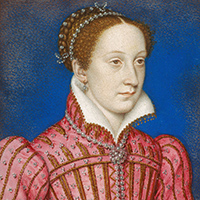
Mary, Queen of Scots (1542-1587)
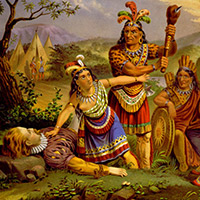
Pocahontas (1596-1617)
Oliver Cromwell (1599-1658)
Charles I of England (1600-1649)
Anthony Ashley Cooper, 1st Earl of Shaftesbury (1621-1683)
Louis XIV (1638-1715)
John Churchill, 1st Duke of Marlborough (1650-1722)
Leaders and Influencers from the Late Modern Period
(circa 17th to 20th century)
Leaders and Influencers from the Age of Reason (Enlightenment)
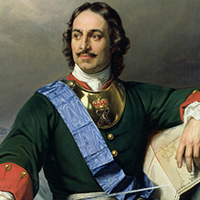
Peter the Great (1672–1725)
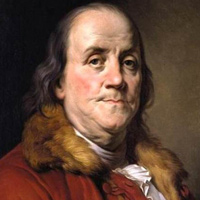
Benjamin Franklin (1706-1790)
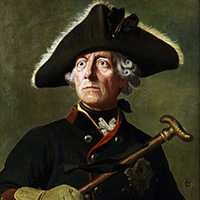
Frederick the Great (1712-1786)
Frederick the Great ascended the Prussian throne at the relatively young age of 28, facing daunting challenges from the start. Neighboring Austria eyed Prussia’s lands with hunger, while threats loomed within his own borders.
But Frederick proved a brilliant military strategist. He outwitted the Austrians during the War of Austrian Succession, expanding Prussia’s territory. Frederick then reorganized his army into a fearsome fighting force that would thrash opponents for decades.
As “enlightened despot,” Frederick tried to govern with reason. He sought to modernize Prussia’s economy and strengthen its bureaucracy through careful reforms. He promoted education, religious tolerance and the arts, patronizing great minds like Voltaire and Bach. Soon Berlin blossomed into a cultural capital.
Frederick’s military exploits gave Prussia swagger, its disciplined army earning global renown. Under Frederick’s firm hand, Prussia rose to great power status in Europe.
Yet some criticized Frederick’s policies, seeing militarism and overreach where others saw progress. Frederick remained unapologetic – his heavy hand had secured Prussia’s place in the sun.
When Frederick died, he left behind a formidable fighting machine and a revitalized nation. Prussia would soon unite Germany under the very blueprint Frederick had etched – through blood and iron.
Samuel Adams (1722-1803)
Adam Smith (1723-1790)
Robert Clive (1725-1774)
Edmund Burke (1729-1797)
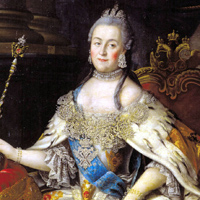
Catherine the Great (1729-1796)
Catherine the Great watched as her cousin and husband Peter III grew more unpopular by the day. Russia needed a firm but wise hand to guide her, not Peter’s gross and disloyal mismanagement.
When news of a plot to depose Peter reached Catherine in 1762, the strategist inside her sprang into action. She organized her coup d’état, with military and aristocratic support, sailing into calmer waters while Peter was easily overthrown.
Once on the throne in 1762, Catherine set about revitalizing Russia. Her reign unleashed a flood of reforms that strengthened the economy, modernized education and fueled Russian arts. Writers like Pushkin flourished under Catherine’s reign, which came to be called the “Golden Age of Russia.”
In foreign affairs, Catherine pursued an expansionist policy. Her wars increased Russia’s size by over 400,000 square miles, propelling Russia into the ranks of Europe’s greatest powers.
Catherine ruled Russia for 34 years, the longest of any female leader. Her reign witnessed a flourishing of Russian culture, a great expansion of the economy, and considerable increased power in international affairs.
When Catherine the Great died in 1796, she left behind a vastly stronger and revitalized Russia. Her vision, strategic maneuvers and deep desire to make Russia into a great nation had fundamentally reshaped European geopolitics.
George Washington (1732-1799)
George Washington was the first President of the United States. After twice being unanimously elected president—the only president to have been elected with 100% of the electoral votes in both his 1st and 2nd term—despite the protests of his exceptionally broad base of supporters, the “American Cincinnatus” again relinquished power at the end of his second term as the first President of the United States, refusing a 3rd term for the good of the American experiment—the bold idea of a government of, by and for the people. To learn more about Washington, check out Classic Influence podcast episode #17: Leverage the Paradox of Self-Reliance: General George Washington Wins the War By First Building Belief and Rapport
John Adams (1735-1826)
Patrick Henry (1736-1799)
Thomas Paine (1737-1809)
John Hancock ( 1737-1793)
Leaders and Influencers from the Age of Revolution
King George III (1738-1820)
George Clinton (1739-1812)
Joseph II (1741-1790)
Samuel Chase (1741-1811)
Thomas Jefferson (1743-1826)
John Jay (1745-1829)
James Madison (1751-1836)
Alexander Hamilton (c. 1755-1804)
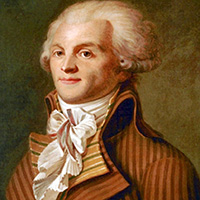
Maximilien Robespierre (1758-1794)
John Quincy Adams (1767-1848)
Andrew Jackson (1767-1845)
Napoleon Bonaparte (1769-1821)
The young Napoleon Bonaparte burst onto the scene in 1793, during the tumultuous French Revolution. His strategic brilliance and leadership on the battlefield quickly gained him national recognition.
Napoleon successfully led French armies in a series of campaigns, expanding French lands and reshaping Europe’s political landscape. Victory after victory soon cemented his reputation as a military genius.
In 1799, Napoleon staged a coup and established himself as France’s First Consul, with absolute power in his hands. Five years later, he crowned himself Emperor of France.
As Emperor, Napoleon reformed French laws with the Napoleonic Code, promoting equality and meritocracy. But his thirst for military conquest remained unquenched.
Napoleon waged war against various European powers, winning early victories but courting disaster. The failed invasion of Russia and a coalition of enemies that united against France ultimately resulted in his defeat and exile.
Napoleon was briefly restored to power during the “Hundred Days” campaign of 1815, but was ultimately crushed at the Battle of Waterloo. He was then exiled to the remote island of Saint Helena, where he died in 1821.
Napoleon’s impact on history is immense. His military strategies revolutionized warfare while his legal reforms influenced systems worldwide. Yet his expansionary rule also sparked resistance, and his wars caused millions of deaths.
Napoleon Bonaparte’s complex legacy as a military genius, statesman and reformer continues to fascinate and divide historians. His story left an indelible mark on both France and Europe as a whole.
Henry Clay (1777-1852)
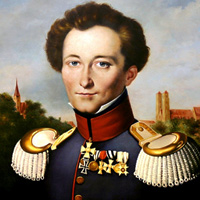
Carl von Clausewitz (1780-1831)
Clausewitz was a Prussian military general and one of the greatest military theorists in history. His writings, most famously On War, are still studied at leading military academies around the world.
Daniel Webster (1782-1852)
John C. Calhoun (1782-1850)
Martin Van Buren (1782-1862)
Zachary Taylor (1784-1850)
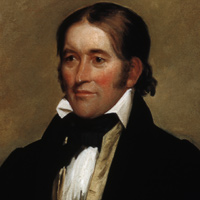
Davy Crockett (1786-1836)
Known as the “King of the Wild Frontier,” Davy Crockett was an American folk hero, frontiersman, a colonel in the local militia, and a politician from Tennessee. Crockett was a gifted storyteller and his exploits became the subject of numerous plays during his lifetime. He died defending the Alamo during the Texas Revolution.
Lord Byron (1788-1824)
James Polk (1795-1849)
Sojourner Truth (1797-1883)
Lord Macaulay (1800-1859)
Benjamin Disraeli (1804-1881)
It was 1837 when Benjamin Disraeli, elected to the House of Commons, first emerged on the political scene in Victorian Britain. A rising star with wit, charisma and rhetorical skill, Disraeli was also a Jewish “dandy” with a taste for fine clothes. He navigated the treacherous waters of parliamentary politics with strategic agility, despite an often strong undercurrent of anti-Semitism, soon becoming one of the greatest speakers of his day.
As leader of the Conservative Party, Disraeli pursued a vision of “Tory Democracy” that sought to preserve tradition while addressing the challenges of industrial Britain. He implemented social reforms to improve public health and sanitation in crowded urban areas.
Building a close relationship with Queen Victoria, Disraeli oversaw the expansion of the British Empire, most notably securing control of the Suez Canal – a strategic waterway linking Britain to India. He also shaped Britain’s relations with European powers, playing a key role in the Congress of Berlin that redraw the map of the Balkans.
Beyond politics, Disraeli was a prolific novelist. His fiction explored themes of class struggle, social reform and national identity that mirrored his political beliefs.
Disraeli served twice as Britain’s Prime Minister, in 1868 and again from 1874 to 1880. While in office, he pursued his conservative vision, seeking to address social ills while preserving traditional institutions and imperial power.
When Disraeli died in 1881, he left a lasting mark on Britain. His efforts to bridge divides, promote conservative ideals and expand the Empire shaped the course of the 19th century and continue to intrigue historians today.
Abraham Lincoln (1809-1865)
Abraham Lincoln was born into poverty on the Kentucky frontier. Despite attending school for only one year, young Abe Lincoln possessed an unquenchable thirst for knowledge and a fierce appetite for work. He read and studied books voraciously on his own and later taught himself to practice law.
Somewhat sporadically, Lincoln climbed the ranks of Illinois politics. He won a seat in the state legislature, and later represented Illinois in the U.S. House of Representatives.
In 1860, running for president under the newly formed Republican party, Lincoln went on to become the 16th President of the United States. Alas, leading a nation on the brink of civil war, Lincoln’s presidency was immediately consumed with fulfilling his inaugural vow to preserve the Union no matter the cost. Lincoln’s leadership and strategic genius would soon prove indispensable as the war got underway.
Still in the midst of the bloody conflict in 1862, Lincoln issued the Emancipation Proclamation, which effectively ended slavery in rebellious states and further energized the Union’s cause.
Lincoln’s great challenge was to guide the nation through its darkest hours. During the conflict, he delivered stirring speeches that articulated a vision of democracy, equality and national unity. His Gettysburg Address stands as one of the greatest speeches in American history.
After four years of bloody conflict, Lincoln secured the Union’s victory and passage of the 13th Amendment, which abolished slavery nationwide. But just days after the South surrendered, Lincoln was assassinated by John Wilkes Booth on April 14, 1865.
Lincoln’s Presidency ended in tragedy, but his legacy endured. His moral compass, calls for unity and dedication to freedom transformed and united the nation. As the “Great Emancipator,” Lincoln came to represent the highest ideals of American democracy.
William Gladstone (1809-1898)
British Prime Minister
Otto Von Bismarck (1815-1898)
Genius German statesman
Elizabeth Cady Stanton (1815-1902)
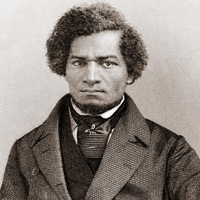
Frederick Douglass (1817-1895)
Leading American abolitionist, orator, writer, and statesman, Frederick Douglass was the U.S. Ambassador to Haiti from 1889 to 1891. Demonstrating an early sense of self-reliance and a willingness to defy authority, Frederick Douglass first began to set himself apart at age 12 when he began teaching himself to read. Initially, his master’s wife was teaching him the alphabet, but after she was reprimanded for teaching a slave to read, Douglass was on his own. He soon found other ways to teach himself to both read and write; including interacting with white children, observing the writing of the men he worked with, and struggling through any reading materials he could get his hands on. Through reading, Douglass became well aware of the world around him and, in 1838, now about 20, he escaped the shackles of slavery, landing in Massachusetts. In time, the spoken and written word enabled Frederick Douglass to gain considerable renown. Along with his work as a prominent abolitionist, he became an outstanding orator, a bestselling author, and a newspaper publisher. He later became the President of the Freedman’s Savings Bank and marshal of the District of Columbia. In 1888, Douglass became the first African American to receive a vote at the Republican National Convention as a nominee for the President of the United States.
Henry David Thoreau (1817-1862)
Leading American philosopher and poet, author of the book Walden and the celebrated essay “Civil Disobedience.”
Karl Marx (1818-1883)
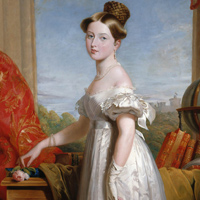
Queen Victoria (1819-1901)
Susan B. Anthony (1820-1906)
Ulysses S. Grant (1822-1885)
A military general and one of the greatest heroes of the Civil War, Ulysses S. Grant was the 18th President of the United States.
Harriet Tubman (c. 1822-1913)
Andrew Carnegie (1835-1919)
Leaders and Influencers from the World War I and World War II Era
Woodrow Wilson (1856-1924)
Louis Brandeis (1856-1941)
William Howard Taft (1857-1930)
Theodore Roosevelt (1858-1919)
Theodore Roosevelt, often referred to as Teddy Roosevelt, was the 26th President of the United States, serving from 1901 to 1909. He is known for his dynamic personality, progressive policies, and contributions to conservation and foreign affairs.
Roosevelt was born in 1858 in New York. He began his political career in the Republican Party and quickly gained a reputation as a reformer. In 1898, he gained national attention for his leadership in the Spanish-American War, leading the famous Rough Riders cavalry regiment.
Roosevelt became president in 1901 following the assassination of President William McKinley. His presidency was marked by a progressive agenda, known as the “Square Deal,” which aimed to address issues of social and economic inequality. He advocated for trust-busting, labor reforms, consumer protection, and conservation.
Roosevelt was a strong advocate for environmental conservation. He established numerous national parks, monuments, and wildlife refuges, preserving millions of acres of land for future generations. His efforts to protect natural resources and regulate corporate activities laid the foundation for modern conservation policies.
On the international stage, Roosevelt pursued an active foreign policy. He facilitated the construction of the Panama Canal, asserting American influence in the Western Hemisphere. He also mediated the end of the Russo-Japanese War, earning him the Nobel Peace Prize in 1906.
After leaving the presidency, Roosevelt embarked on a safari in Africa and explored the Amazon region of South America. He remained politically active, running for president again in 1912 as the candidate of the Progressive Party. Though unsuccessful, his campaign advanced progressive causes and influenced future reform movements.
Theodore Roosevelt’s energetic leadership, progressive policies, and commitment to conservation and foreign affairs left a lasting impact on the United States. He is remembered as one of the most influential and dynamic presidents in American history, shaping the role of the presidency and advocating for social and environmental justice.
Learn more about how Theodore Roosevelt became first an apostle, and, ultimately, the champion and exemplar of the Strenuous Life.
William Jennings Bryan (1860-1925)
Jane Addams (1860-1935)
Jane Addams was an American social reformer, activist, and pioneer in the field of social work. She is best known as the co-founder of Hull House, a settlement house in Chicago that provided support and services to immigrants and the poor.
Born in 1860 in Illinois, Jane Addams came from a privileged background but chose to devote her life to social causes. In 1889, she and her friend Ellen Gates Starr established Hull House, inspired by the settlement house movement in Britain. Hull House aimed to address the social and economic issues faced by immigrant communities, providing education, healthcare, childcare, and other support services.
Addams’s work at Hull House had a significant impact on the lives of thousands of individuals, particularly immigrants. She advocated for improved living conditions, labor rights, and women’s suffrage. Addams also played a key role in establishing the field of social work as a profession, emphasizing the importance of addressing social problems through systematic and compassionate approaches.
Addams was involved in various national and international peace and social justice movements. She was a prominent figure in the peace movement during World War I and played a significant role in the founding of the Women’s International League for Peace and Freedom.
For her contributions, Jane Addams became the first American woman to be awarded the Nobel Peace Prize in 1931. Her tireless efforts to promote social justice, peace, and equality continue to inspire generations of activists and social workers.
Jane Addams’s legacy is that of a compassionate and dedicated advocate for social reform. Her work at Hull House and her commitment to addressing social injustices helped shape social work as a profession and contributed to the advancement of social welfare policies in the United States.
David Lloyd George (1863-1945)
The Wright Brothers—
Wilbur (1867-1912) and Orville (1871-1948)
Orville and Wilbur Wright were two American aviation pioneers who are today credited with the first successful piloted, powered, “heavier than air” airplane flight in history. In competition with some of the greatest minds in science and technology at the time, few could have expected that the Wright brothers would emerge as such successful, pioneering aviators. They lacked education, formal training, and financial support and, yet, they had everything they needed to succeed. To learn more check out Classic Influence episode #37: Escalate the Intensity, Increase the Stakes: Orville and Wilbur Wright’s Extraordinary Obsession with Flight.
Mary Parker Follet (1868-1933)
Neville Chamberlain (1869-1940)
Emma Goldman (1869-1940)
Vladimir Lenin (1870-1924)
Calvin Coolidge (1872-1933)
Bertrand Russell (1872-1970)
Winston Churchill (1874-1965)
Winston Churchill was a British statesman, writer, and military leader who is best known for his leadership during World War II. He served as the Prime Minister of the United Kingdom from 1940 to 1945 and again from 1951 to 1955.
Churchill was born in 1874 and had a long and illustrious political career. He held various government positions, including First Lord of the Admiralty and Chancellor of the Exchequer, before becoming Prime Minister. He was known for his powerful oratory skills, unwavering determination, and strategic thinking.
During World War II, Churchill played a crucial role in leading Britain and its allies to victory against Nazi Germany. His speeches, such as the famous “We shall fight on the beaches” address, inspired the British people and strengthened their resolve during the darkest days of the war. Churchill’s strategic decisions, including the formation of the Allied coalition and his insistence on taking the fight to the enemy, helped turn the tide in favor of the Allies.
Churchill’s leadership extended beyond the war. He was a staunch advocate for democracy, freedom, and human rights. He was instrumental in shaping the post-war world and played a key role in the formation of the United Nations.
In addition to his political career, Churchill was also an accomplished writer and historian. He was awarded the Nobel Prize in Literature in 1953 for his mastery of historical and biographical writing.
Winston Churchill is widely regarded as one of the greatest wartime leaders in history. His indomitable spirit, eloquence, and strategic acumen earned him admiration and respect both in his time and in subsequent years. His contributions to the defeat of fascism and the preservation of democracy have left a lasting impact on the world.
Ernest Shackleton (1874-1922)
Ernest Shackleton was an Irish-born Antarctic explorer who led three British expeditions to the Antarctic. Shackleton is remembered as one of the key figures in the Heroic Age of Exploration. The story of Shackleton and his crew’s quest to cross the South Pole is one of the greatest sagas of survival in history. It is also a astounding reminder of the power of optimism, endurance, and hope. To learn more, check out Classic Influence Podcast episode #28: Hammer Optimism into Your Plans: Ernest Shackleton’s Miracle Trip from Elephant Island.
Herbert Clark Hoover (1874-1964)
Joseph Stalin (1878-1953)
Joseph Stalin, born Ioseb Besarionis dze Jughashvili on December 18, 1878, in Gori, Georgia, was a Soviet politician and the leader of the Soviet Union from the mid-1920s until his death in 1953. Stalin played a crucial role in the establishment of a totalitarian regime and the transformation of the Soviet Union into a major world power.
Stalin’s rise to power began after the death of Vladimir Lenin, the founder of the Soviet Union. Through a series of political maneuvers, he emerged as the General Secretary of the Communist Party and gradually consolidated his control over the party and the government. Stalin implemented a series of policies that aimed to industrialize and modernize the Soviet Union, often at the expense of human lives and individual freedoms.
Stalin’s leadership was characterized by a cult of personality, state control of the economy, and the suppression of dissent through purges and political repression. His policies, including collectivization and forced industrialization, resulted in significant social and economic upheaval, as well as widespread famine and loss of life.
Under Stalin’s rule, the Soviet Union played a major role in World War II, ultimately emerging as one of the victorious powers. However, his leadership was also marked by widespread human rights abuses, including mass executions, forced labor camps (known as Gulags), and political persecution. Estimates of the number of people who died as a result of Stalin’s policies range from several million to tens of millions.
Joseph Stalin’s legacy remains highly controversial. While some argue that his leadership was necessary for the industrialization and modernization of the Soviet Union, others emphasize the immense human suffering and loss of life that occurred under his regime. His reign continues to be a subject of intense historical analysis and debate, highlighting the complex and dark aspects of 20th-century history.
Leon Trotsky (1879-1940)
George Marshall (1880-1959)
General Douglas MacArthur (1880-1964)
Douglas MacArthur was an American military leader who played a prominent role in the 20th century. He was born on January 26, 1880, in Little Rock, Arkansas, and came from a military family.
MacArthur’s career spanned several decades, and he achieved high-ranking positions in the United States Army. He is best known for his leadership during World War II and the Korean War.
During World War II, MacArthur served as the Supreme Commander of Allied forces in the Pacific theater. He led successful military campaigns, such as the liberation of the Philippines and the Battle of Okinawa. MacArthur also played a significant role in the post-war reconstruction of Japan, serving as the Supreme Commander for the Allied Powers and overseeing the country’s transition to a democratic nation.
In the Korean War, MacArthur commanded United Nations forces and played a key role in the early successes of the war. However, his advocacy for a more aggressive approach, including potential military actions against China, led to a disagreement with U.S. President Harry Truman. In 1951, MacArthur was relieved of his command by President Truman due to these differences in strategy.
MacArthur’s military career made him a highly respected figure in the United States, and he was known for his strong personality and unwavering determination. He is remembered for his famous quote, “I shall return,” which he declared upon leaving the Philippines during World War II and later fulfilled.
After retiring from the military, MacArthur remained active in public life and became involved in politics. He delivered a memorable farewell address to the U.S. Congress in 1951, famously stating, “Old soldiers never die; they just fade away.”
Douglas MacArthur’s military leadership and significant contributions to American history have left a lasting impact. He is remembered as one of the most prominent military figures of his time and is regarded as a symbol of American military strength and determination.
Franklin D. Roosevelt (1882-1945)
Consistently ranked as one of America’s top three greatest presidents, Franklin Roosevelt was elected an unprecedented four times. Franklin D. Roosevelt, commonly known as FDR, was the 32nd President of the United States, serving from 1933 until his death in 1945. He was born on January 30, 1882, in Hyde Park, New York.
FDR is best known for his leadership during the Great Depression and World War II. When he assumed the presidency in 1933, the United States was in the midst of the worst economic crisis in its history. FDR implemented a series of bold economic reforms and policies known as the New Deal, aimed at providing relief, recovery, and reform. These initiatives included government intervention, job creation programs, financial regulations, and the establishment of social welfare programs.
During World War II, FDR guided the United States through the conflict, initially pursuing a policy of neutrality but eventually leading the nation to join the Allied forces after the attack on Pearl Harbor in 1941. He mobilized the country’s industrial capacity for war production, implemented rationing and price controls, and worked closely with Allied leaders to formulate strategies to defeat Nazi Germany and Imperial Japan.
FDR’s leadership and ability to inspire the American people were notable characteristics of his presidency. He delivered regular radio addresses known as “fireside chats,” which helped him establish a direct and personal connection with the public.
Unfortunately, FDR did not live to see the end of World War II. He passed away on April 12, 1945, just a few months before the war’s conclusion. His vice president, Harry S. Truman, succeeded him as president.
Franklin D. Roosevelt’s legacy is significant. His New Deal policies and leadership during challenging times played a vital role in shaping the modern American government and welfare state. He is remembered as one of the most influential presidents in U.S. history, known for his ability to rally the nation and his efforts to address the economic and social needs of the American people during a time of crisis.
Learn more about FDR and how he used framing to influence, persuade, and win.
Fiorello H. La Guardia (1882-1947)
Fiorello La Guardia was the mayor of New York City from 1934 to 1945. Prior to becoming mayor, La Guardia was a Congressman from New York’s 20th district. Historians widely consider La Guardia to be one of New York’s best mayors. In addition to La Guardia airport, a number of other institutions and streets are named in his honor. Standing 5 feet 2 inches tall, La Guardia is remembered as a force to be reckoned with. The New York Times wrote in his obituary: “Dynamite and aggressive, he appeared to be everywhere at once, rushing to fires at times and at other times flying all over the country by airplane. A fighter by nature he was always ready to take on all comers, big or little, from Hitler to the man in the street.” Obituary (1947, September 21). “La Guardia is Dead; City Pays Homage to 3-Time Mayor.” New York Times. Mayor Fiorello La Guardia’s Obituatry
Benito Mussolini (1883-1945)
Benito Mussolini was an Italian politician and the founder of Italian Fascism. He was born on July 29, 1883, in Predappio, Italy. Mussolini rose to power in the early 1920s and became the Prime Minister of Italy in 1922.
As the leader of the National Fascist Party, Mussolini implemented a totalitarian regime that sought to establish a centralized authority and suppress political opposition. He emphasized nationalism, militarism, and authoritarian rule, aiming to revive Italy as a major world power.
During his rule, Mussolini pursued policies that aimed to modernize Italy and expand its influence. He initiated large-scale public works projects, such as the draining of marshes and the construction of infrastructure, with the goal of improving Italy’s economy and infrastructure. He also sought to increase Italy’s territorial possessions through aggressive foreign policies, leading to Italy’s invasion of Ethiopia in 1935 and its involvement in World War II as an Axis power.
Mussolini’s regime suppressed political dissent, restricted civil liberties, and established a cult of personality around the leader. His government used propaganda and intimidation to control the population and maintain its grip on power.
However, Mussolini’s leadership ultimately led to Italy’s downfall. The country suffered military defeats in World War II, and public support for Mussolini waned. In 1943, he was arrested and imprisoned. In 1945, as the war came to an end, he was executed by Italian partisans.
Benito Mussolini’s legacy is highly controversial and widely condemned. His fascist regime, aggressive foreign policies, and alliance with Nazi Germany had a disastrous impact on Italy and the world. His actions and ideologies have been widely criticized for their authoritarianism, suppression of human rights, and contribution to the atrocities committed during World War II.
Clement Attlee (1883-1967)
Harry Truman (1884-1972)
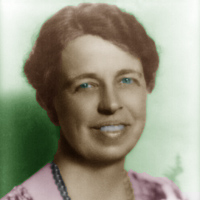
Eleanor Roosevelt (1884-1962)
George Patton (1885-1945)
A charismatic, courageous, and flamboyant hero of World War II, General George Patton possessed a relentless will to win. He was also a man who struggled with self-doubt and fear. Check out Classic Influence episode #039 to learn how his willingness to accept the distinct likelihood of death forever changed the arc of his destiny: Find Courage Under Fire—Count the Costs, Then Forge Ahead: General George S. Patton’s Greatest Nightmare and Moment of Truth.
Chiang Kai-shek (1887-1975)
James Farley (1888-1976)
American politician and key figure in the rise of Franklin D. Roosevelt. Farley was also known as a political kingmaker, and an early expert in the use of polling data.
Dale Carnegie (1888-1955)
Dale Carnegie was an American writer and lecturer and, ultimately, a successful businessman. He was the author of How to Win Friends and Influence People, one of the best-selling books in publishing history. Born in poverty on a small farm in Missouri, Carnegie was nearly 50 before he finally figured out the key to his blockbuster success. To learn more about how Carnegie became “The Father of Self-Help,” and, in time, the head of a thriving personal development empire the likes of which the world had never before seen, listen to this episode of Classic Influence: CIP 038. Make Your First Dollar, Profit from the Power of Proof: Dale Carnegie’s Baby Steps Rise to Blockbuster Success.
John Foster Dulles (1888-1959)
Joseph P. Kennedy, Sr. (1888-1969)
Adolf Hitler (1889-1945)
Adolf Hitler was a German dictator who led the Nazi Party and served as the Chancellor of Germany from 1933 to 1945. He is infamous for his role in instigating World War II and orchestrating the Holocaust, the systematic genocide of six million Jews and millions of others deemed undesirable by the Nazi regime.
Born in Austria in 1889, Hitler rose to power in Germany through a combination of political maneuvering, propaganda, and exploitation of the country’s economic and social turmoil. Once in power, he implemented a series of totalitarian policies that aimed to establish a racially pure Aryan society and consolidate his control over all aspects of German life.
Under Hitler’s leadership, Germany embarked on an aggressive expansionist agenda, violating international treaties and annexing territories through military force. Hitler’s militarization efforts, particularly the rearmament of Germany, contributed to the outbreak of World War II in 1939.
Hitler’s ideology, known as Nazism, was characterized by extreme racism, anti-Semitism, and the belief in Aryan racial superiority. His government implemented policies that targeted Jews, Roma people, disabled individuals, LGBTQ+ individuals, political dissidents, and other groups. The systematic persecution and extermination of millions during the Holocaust stands as one of the darkest chapters in human history.
In 1945, as Allied forces closed in on Germany, Hitler committed suicide in his bunker in Berlin. His death marked the end of the Nazi regime and the beginning of Germany’s reconstruction and denazification process.
Adolf Hitler’s actions and ideology have left an indelible mark on history. The immense suffering, loss of life, and devastation caused by his policies serve as a reminder of the dangers of totalitarianism, hate, and prejudice. The atrocities committed under his leadership continue to serve as a stark warning and a call to prevent the recurrence of such horrors.
Jawaharlal Nehru (1889-1964)
Charles De Gaulle (1890-1970)
Charles De Gaulle was a French general who helped to fight against Nazi Germany during World War II. After the war, de Gaulle formed his own political party (Rally of the French People). He was later elected the first president of the Fifth (and current) Republic of France. To this day, Charles de Gaulle is widely seen as a great hero of France’s modern era.
Dwight David Eisenhower (1890-1969)
Ho Chi Minh (1890-1969)
Earl Warren (1891-1974)
Francisco Franco (1892-1975)
Wendell Wilkie (1892-1944)
Huey Long (1893-1935)
A populist champion of the downtrodden, the oppressed, and the poor, Huey Long grew up in Louisiana during the Gilded Age and became involved in politics in the years leading up to the Great Depression. Despite the financial hardships he faced during his upbringing in Louisiana, and the fierce political opposition he faced throughout his rise to the pinnacle of power in the Pelican State, Huey Long rose to become one of America’s greatest political stars. To learn more about how Huey overcame his humble origins and built a reputation for himself as a political force to be reckoned with, check out this episode of Classic Influence: Dare to Defy the Established Order, Risk to Skip Ahead: Huey Long Cuts a Barrier-Breaking Path to the Top.
Leaders and Influencers from the Atomic Age and the Cold War Era
Mao Zedong (1893-1976)
Nikita Khrushchev (1894-1971)
Born in Ukraine, Nikita Khrushchev was a Soviet statesman who served as the First Secretary of the Communist Party of the Soviet Union from 1953 to 1964. He rose through the ranks of the Communist Party, eventually becoming one of the most influential figures in Soviet politics during the Cold War era.
Khrushchev came to power following the death of Joseph Stalin in 1953. He pursued a policy of de-Stalinization, denouncing the cult of personality that surrounded Stalin and implementing reforms to loosen state control and promote a more relaxed atmosphere within the Soviet Union. He aimed to improve living standards and increase agricultural and industrial productivity.
Internationally, Khrushchev was involved in several significant events. He engaged in a high-profile power struggle with the United States during the Cold War, including the Cuban Missile Crisis in 1962, when the world came close to nuclear conflict. Khrushchev also advocated for the policy of peaceful coexistence with the West, seeking to reduce tensions and promote cooperation between the superpowers.
Khrushchev’s leadership was marked by both achievements and controversies. He oversaw the launch of the first manned spaceflight by Yuri Gagarin in 1961, which bolstered Soviet prestige. However, his agricultural policies, such as the Virgin Lands Campaign, had mixed results, and his attempts at political and economic reforms faced significant challenges within the Soviet system.
In 1964, Khrushchev was removed from power by his political opponents within the Communist Party. He lived in retirement until his death in 1971.
Nikita Khrushchev’s tenure as the leader of the Soviet Union represented a significant shift in Soviet policy and a departure from the repressive regime of Stalin. While his reforms and foreign policy initiatives had varying degrees of success, Khrushchev’s leadership contributed to shaping the dynamics of the Cold War and had a lasting impact on the Soviet Union and the world.
Francois "Papa Doc" Duvalier (1907-1971)
Adam Clayton Powell Jr. (1908-1972)
Adam Clayton Powell Jr. was an American civil rights leader, pastor, and politician who played a prominent role in the fight for racial equality and social justice during the mid-20th century. He was born on November 29, 1908, in New Haven, Connecticut.
Powell served as the pastor of the Abyssinian Baptist Church in Harlem, New York City, which became a center for activism and community organizing. In the political arena, he represented New York’s 22nd congressional district and became the first African American to be elected to Congress from New York.
As a congressman, Powell fought against racial discrimination and advocated for the rights of African Americans. He played a crucial role in the passage of important civil rights legislation, including the Civil Rights Act of 1964 and the Voting Rights Act of 1965.
Powell was known for his charismatic personality, powerful oratory, and uncompromising stance against racial injustice. He used his position to challenge segregation and promote equality in housing, education, employment, and voting rights.
However, Powell’s political career was not without controversy. He faced allegations of financial misconduct and unethical behavior, which led to a highly publicized investigation and his eventual expulsion from Congress in 1967. Powell, nevertheless, remained influential and continued to advocate for civil rights until his death in 1972.
Adam Clayton Powell Jr.’s legacy lies in his tireless efforts to combat racial discrimination and advance the cause of civil rights. He was a prominent figure in the civil rights movement and his contributions helped pave the way for greater equality and social progress in the United States.
Joseph R. McCarthy (1908-1957)
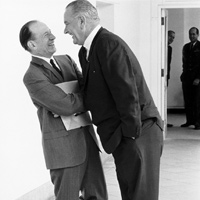
Lyndon Johnson (1908-1973)
Lyndon Baines Johnson was the 36th President of the United States. He was President John F. Kennedy’s Vice President until Kennedy was assassinated, whereupon LBJ was sworn in. Johnson could be very persuasive and, contrary to his presence before large audiences, he had a personal charisma that helped him to build relationships and power in Washington. Known as “The Johnson Treatment,” in this photo we see LBJ using his physical confidence and imposing stature to emphasize his point.
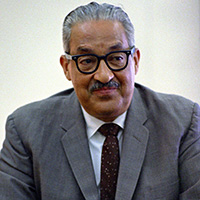
Thurgood Marshall (1908-1993)
Nelson Rockfeller (1908-1979)
Mother Teresa (1910-1997)
Ronald Reagan (1911-2004)
Ronald Reagan was the 40th President of the United States, serving from 1981 to 1989. He was born on February 6, 1911, in Tampico, Illinois, and prior to his presidency, Reagan had a successful career as an actor.
Reagan is known for his conservative political ideology and his belief in limited government, free-market capitalism, and anti-communism. He sought to reduce government regulation and taxes, promote economic growth, and strengthen the U.S. military.
During his presidency, Reagan implemented a series of economic policies known as Reaganomics, which included tax cuts, deregulation, and a focus on supply-side economics. He believed that reducing taxes and government intervention would stimulate economic growth and create jobs. His policies had a significant impact on the U.S. economy, leading to a period of sustained economic expansion known as the “Reagan Revolution.”
Reagan also played a crucial role in the Cold War, advocating for a strong stance against the Soviet Union. He famously called for the Soviet leader, Mikhail Gorbachev, to “tear down this wall,” referring to the Berlin Wall, which eventually led to its dismantling in 1989.
Reagan’s presidency was not without controversy. His administration faced challenges such as the Iran-Contra affair, an arms-for-hostages scandal, which damaged his reputation. However, he remains popular among conservatives for his leadership style, charisma, and efforts to promote American values and interests.
After leaving office, Reagan continued to be active in public life and became an influential figure within the Republican Party. His political and economic legacy continues to shape American conservatism, and he is remembered as one of the most influential presidents of the 20th century.
Ronald Reagan’s presidency marked a significant period in American history, characterized by conservative policies, economic transformation, and the end of the Cold War. He is remembered as a transformative figure who played a pivotal role in shaping the United States and the world during the latter half of the 20th century.
Thomas Philip O'Neill Jr. (1912-1994)
Rosa Parks (1913-2005)
Richard Nixon (1913-1994)
Augusto Pinochet (1915-2006)
Robert McNamara (1916-2009)
John Fitzgerald Kennedy (1917-1963)
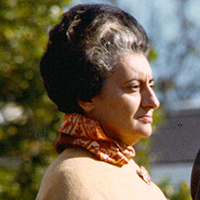
Indira Gandhi (1917-1984)
Indira Gandhi was the first and, so far, only woman to be prime minister of India. She was the daughter of the first prime minister of India, Jawaharlal Nehru. She also served as prime minister twice, first from 1966 to 1977, and then from 1980 until 1984 when she was struck down by the bullets two of her own bodyguards.
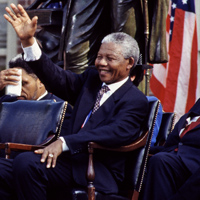
Nelson Mandela (1918-2013)
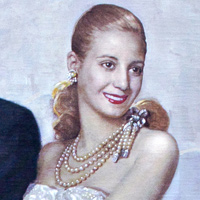
Eva Peron (1919-1952)
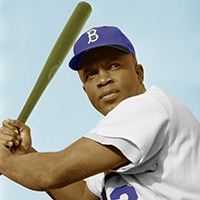
Jackie Robinson (1919-1972)
McGeorge Bundy (1919-1996)
Pope John Paul II (1920-2005)
As Bishop of Rome from 1978 to 2005, John Paul II was the second longest serving pope.
Henry Kissinger (1923- )
Jimmy Carter (1924- )
Malcolm Little "Malcolm X" (1925-1965)
Robert Francis Kennedy (1925-1968)
Martin Luther King Jr. (1929-1968)
Hero. Leader. Icon. Legend. Martin Luther King Jr. stands as one of history’s greatest revolutionary leaders. Confronted with one of the most difficult, deep-rooted problems, opposed by some of the most vicious, hate-filled racists, Dr King was able to find a path forward again and again. Revealing a key secret to Dr. King’s effectiveness as a strategist, this episode also explores a simple, but powerful, reflective practice, and the close connection between writing, reflecting, and leading.
Leaders and Influencers from the Postmodern Period
(circa late 20th century)
By JOHNNY WELCH, Ed.D., M.B.A.
Dr. Welch teaches a leadership course at Columbia University. His leadership development practice focuses on the strategic application of the wisdom of history. Learn More.


